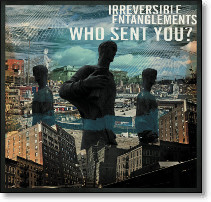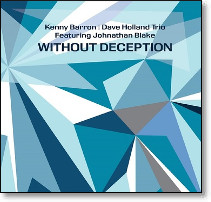Latest
2024
Dec
Nov
Oct
Sep
Aug
Jul
Jun
May
Apr
Mar
Feb
Jan
2023
Dec
Nov
Oct
Sep
Aug
Jul
Jun
May
Apr
Mar
Feb
Jan
2022
Dec
Nov
Oct
Sep
Aug
Jul
Jun
May
Apr
Mar
Feb
Jan
2021
Dec
Nov
Oct
Sep
Aug
Jul
Jun
May
Apr
Mar
Feb
Jan
2020
Dec
Nov
Oct
Sep
Aug
Jul
Jun
May
Apr
Mar
Feb
Jan
2019
Dec
Nov
Oct
Sep
Aug
Jul
Jun
May
Apr
Mar
Feb
Jan
2018
Dec
Nov
Oct
Sep
Aug
Jul
Jun
May
Apr
Mar
Feb
Jan
2017
Dec
Nov
Oct
Sep
Aug
Jul
Jun
May
Apr
Mar
Feb
Jan
2016
Dec
Nov
Oct
Sep
Aug
Jul
Jun
May
Apr
Mar
Feb
Jan
2015
Dec
Nov
Oct
Sep
Aug
Jul
Jun
May
Apr
Mar
Feb
Jan
2014
Dec
Nov
Oct
Sep
Aug
Jul
Jun
May
Apr
Mar
Feb
Jan
2013
Dec
Nov
Oct
Sep
Aug
Jul
Jun
May
Apr
Mar
Feb
Jan
2012
Dec
Nov
Oct
Sep
Aug
Jul
Jun
May
Apr
Mar
Feb
Jan
2011
Dec
Nov
Oct
Sep
Aug
Jul
Jun
May
Apr
Mar
Feb
Jan
2010
Dec
Nov
Oct
Sep
Aug
Jul
Jun
May
Apr
Mar
Feb
Jan
2009
Dec
Nov
Oct
Sep
Aug
Jul
Jun
May
Apr
Mar
Feb
Jan
2008
Dec
Nov
Oct
Sep
Aug
Jul
Jun
May
Apr
Mar
Feb
Jan
2007
Dec
Nov
Oct
Sep
Aug
Jul
Jun
May
Apr
Mar
Feb
Jan
2006
Dec
Nov
Oct
Sep
Aug
Jul
Jun
May
Apr
Mar
Feb
Jan
2005
Dec
Nov
Oct
Sep
Aug
Jul
Jun
May
Apr
Mar
Feb
Jan
2004
Dec
Nov
Oct
Sep
Aug
Jul
Jun
May
Apr
Mar
Feb
Jan
2003
Dec
Nov
Oct
Sep
Aug
Jul
Jun
May
Apr
Mar
Feb
Jan
2002
Dec
Nov
Oct
Sep
Aug
Jul
Jun
May
Apr
Mar
Feb
Jan
2001
Dec
Oct
Sep
Aug
Jul
Jun
May
Apr
Mar
Feb
Monday, March 30, 2020
Music Week
 |
 |
 |
 |
 |
 |
Expanded blog post, March archive (done).
Music: Current count 33007 [32971] rated (+36), 219 [212] unrated (+7).
Not an exceptional week, but as expected, rated count topped 33000. Unless things change, that's more a measure of time than anything else. I'd reckon my average haul per week is about 30, so I chalk up another thousand every 30-35 weeks, roughly 7-8 months. Looking back, I crossed 32000 the week of September 2, 2019, so I must be averaging a bit more. This week got off to a slow start, but picked up speed when I delved into Pharoah Sanders' back catalog. Didn't find anything there I had missed as good as Tauhid (1966), Village of the Pharoahs (1973), Africa (1987), Welcome to Love (A+ in 1990), or Crescent With Love (1992).
Spent some time last week adding recent reviews to my Jazz Guide draft files. Got up to December, so I should finish that task this week. Page counts up to 835 (20th Century, 335k words) and 1855 (21st, 857k words). I'm also collecting non-jazz capsules (827k words, but works out to 1928 pages with a less dense font). The guides are sorted by artist, so that can get tedious. The non-jazz capsules are just collected in order published, so that's easier.
You can download the guides here and here. They are in LibreWriter ODT format. LibreOffice is free software, with a word processor, spreadsheet, database, presentation editor, and other programs -- presumably everything that's in Microsoft Office. You can download and install it on Linux, Microsoft, and Apple computers, at no charge. You can import most file formats (including Microsoft Word), and can use it to generate PDF and HTML files. You can probably open an ODT file in Microsoft Word (post-2010 releases).
I doubt if these are very useful, other than that they consolidate widely scattered reviews by artist, in some kind of order (by recording date for 20th, release date by 21st). It would be an insane amount of work to turn these into a useful guides: the most obvious step would be to move the biographies to the artist heads, even though that may reduce most record "reviews" to mere grades. I'm thinking now that it may be best to copy them to a website (perhaps using Mediawiki?). Presumably, the current editing is a necessary step in that direction (although it also feels like a time sink).
March had five Mondays, so more records than usual this month: 186. The monthly archive is here.
New records reviewed this week:
- Lakecia Benjamin: Pursuance: The Coltranes (2020, Ropeadope): [r]: B+(*)
- Jerry Bergonzi: Nearly Blue (2019 [2020], Savant): [cd]: A-
- Andy Bianco: NYC Stories (2020, Next Level): [r]: B+(*)
- Vito Dieterle: Anemone (2018 [2020], Ride Symbol): [cd]: B+(***)
- Vito Dieterle/Joel Forrester: Status Sphere (2019 [2020], Ride Symbol): [cd]: B+(**)
- Amina Figarova Edition 113: Persistence (2018 [2020], AmFi): [cd]: B
- Monika Herzig: Eternal Dance (2019 [2020], Savant): [cd]: B+(*)
- Dua Lipa: Future Nostalgia (2020, Warner): [r]: A-
- Harold Mabern: Mabern Plays Mabern (2018 [2020], Smoke Sessions): [r]: B+(**)
- Christian McBride: The Movement Revisited: A Musical Portrait of Four Icons (2013 [2020], Mack Avenue): [r]: B+(**)
- Thollem McDonas/William Parker/Nels Cline: Gowanus Sessions II (2012 [2020], ESP-Disk): [bc]: B+(**)
- Arúan Ortiz With Andrew Cyrille and Mauricio Herrera: Inside Rhythmic Falls (2019 [2020], Intakt): [r]: B+(**)
- Painted Faces: Tales From the Skinny Apartment (2017 [2019], ESP-Disk): [r]: B-
- Vanderlei Pereira and Blindfold Test: Vision for Rhythm (2020, Jazzheads): [cd]: B+(*) [05-22]
- Radical Empathy Trio: Reality and Other Imaginary Places (2017 [2019], ESP-Disk): [bc]: B+(*)
- Dave Sewelson: More Music for a Free World (2018 [2020], Mahakala Music): [r]: A-
- SFJazz Collective: Live: SFJazz Center 2019: 50th Anniversary: Miles Davis In a Silent Way and Sly & the Family Stone Stand! (2019 [2020], SFJazz): [r]: B+(**)
- Shabaka and the Ancestors: We Are Sent Here by History (2015 [2020], Impulse!): [r]: A-
- Kandace Springs: The Women Who Raised Me (2020, Blue Note): [r]: B
- Ohad Talmor: Long Forms (2015 [2020], Intakt): [r]: B+(***)
- Waxahatchee: Saint Cloud (2020, Merge): [r]: A-
Recent reissues, compilations, and vault discoveries:
- Antoinette Konan: Antoinette Konan (1986 [2019], Awesome Tapes From Africa): [bc]: B+(*)
- New Improvised Music From Buenos Aires (2012-17 [2019], ESP-Disk): [bc]: B+(***)
- Charlie Parker: The Savoy 10-inch LP Collection (1944-48 [2020], Craft): [r]: B+(**)
- Pharoah Sanders: Live in Paris 1975 (1975 [2020], Transversales Disque): [r]: B+(**)
Old music:
- John Coltrane Featuring Pharoah Sanders: Live in Seattle (1965 [1994], Impulse!, 2CD): [r]: B+(*)
- Harold Mabern: The Iron Man: Live at Smoke (2018, Smoke Sessions, 2CD): [r]: A-
- Charlie Parker: In Sweden 1950: The Complete Recordings (1950 [2002], Storyville): [bc]: B+(**)
- Pharoah Sanders: Deaf Dumb Blind (Summun Bukmun Umyun) (1970, Impulse!): [r]: B+(***)
- Pharoah Sanders: Thembi (1970-71 [1971], Impulse!): [r]: B+(*)
- Pharoah Sanders: Black Unity (1971, Impulse!): [r]: B+(**)
- Pharoah Sanders: Live at the East (1971 [1972], Impulse!): [r]: B+(*)
- Pharoah Sanders: Love in Us All (1972-73 [1974], Impulse!): [r]: B+(**)
- Pharoah Sanders: Love Will Find a Way (1978, Arista): [r]: B
- Pharoah Sanders: Save the Children (1998, Verve): [r]: B+(*)
- Pharoah Sanders/Graham Haynes: With a Heartbeat (2003, Evolver): [r]: B+(***)
Unpacking: Found in the mail last week:
- Harrison Argatoff: Toronto Streets Tour (self-released -19)
- Jerry Bergonzi: Nearly Blue (Savant)
- Jeff Hamilton Trio: Catch Me If You Can (Capri) [07-17]
- Monika Herzig: Eternal Dance (Savant)
- Samo Salamon/Igor Matkovic/Kristijan Krajncan: Common Flow (Sazas)
- Samo Salamon/Igor Matkovic/Kristijan Krajncan: Rare Ebb (Sazas)
- Diane Schuur: Running on Faith (Jazzheads) [05-08]
- The TNEK Jazz Quintet: Plays the Music of Sam Jones (TNEK Jazz)
- Sophie Tassignon: Mysteries Unfold (RareNoise) [04-24]
- Lou Volpe: Before & After (Jazz Guitar) [04-01]
Daily Log
John Chacona posted a food photo of kiyiana, and Shelly Rae Barnard followed up with a recipe:
Sauté 1/2 c chopped tomato, 1/3 c chopped kalamata [olives], and 1/4 c fresh oregano in 2 T olive oil, until liquid from tomato evaporates. Pour mixture of 4 beaten eggs, 1/3 c crumbled feta, and 1/4 c grated romano; allow to cook on med-med/low heat until you can flip half the omelette over the other. Sprinkle with chopped parsley and pepper.
Was tempted by this, but couldn't find eggs on last grocery trip, and I'd have to substitute dried oregano.
Diane Kochilas has something similar in The Food and Wine of Greece: Kayianas (p. 270): adds sausage, omits oregano (and the parsley garnish), replaces the olives with a green bell pepper, the cheeses with 1/2 cup kefalotyri (or parmesan).
Kochilas also has a Kayianas recipe on the web, which includes the olives and oregano (albeit less, with fresh mint an alternative), adds garlic, omits the sausage and pepper, and garnishes with parsley. The feta/romano mix strikes me as a good substitute for kefalotyri (which I've only found once in Wichita, using for saganaki -- most often I use haloumi for that).
Sunday, March 29, 2020
Weekend Roundup
News this week is pretty much all coronavirus. Most striking number below is Anthony Fauci's projection that coronavirus will kill more than 100,000 Americans, and that millions will be infected. The US now has more confirmed cases than any other nation -- even China, despite a head start and nearly four times as many people (see How the US stacks up to other countries in confirmed coronavirus cases; note the graphs, which plot spread over time; also note how little testing has actually been carried out in the US).
Or, if you're more concerned about money than people, the number of new unemployment filings last week broke the previous record, by a factor of five. We're now seeing projections that unemployment will shoot to 20%, and that this quarter's GDP will drop by more than 10%. For comparison, the total drop in the 2008 "Great Recession" over two quarters was 4.3%. Congress passed a $2 trillion "stimulus" bill late last week. I'd call it more of a stopgap. I'm especially struck by how eager Republicans are to break the bank when one of their own is president, compared to how chintzy and vindictive they are when a Democrat is in the White House. Much like Republicans managed to undermine Obama's $700 billion stimulus bill in 2009, Democrats worked hard to make this bill more fair to workers and the newly unemployed than Trump initially wanted.
Ran through this rather quickly, without many comments. You can look up the technical stuff yourself (here's the Vox index; American Prospect has a relatively good political-oriented series, including David Dayen's "COVID-19 Daily" briefs). Occasionally I note speculation on what happens "after" -- still, I find this impossible given that I don't have any real idea how far this falls apart, or when (if ever) a "new normal" stabilizes. I've seen pieces comparing coronavirus to global warming, but don't find them to be very credible (yet). Also, not much below on politics. Nothing in the last week (or month) has convinced me that Biden is the right person to take on Trump, yet it feels unseemly to try to convince his Democratic supporters of that at this particular moment. It seems significant that this poll shows only 24% of Biden supporters to be very enthusiastic, vs. 53% of Trump supporters. (His 24% not only compares poorly to Trump, but to Hillary Clinton's lame 32% four years ago.)
Some scattered links this week:
Davey Alba/Sheera Frenkel: Medical expert who corrects Trump is now a target of the far right: "Dr. Anthony Fauci, the administration's most outspoken advocate of emergency virus measures, faces a torrent of false claims that he is mobilizing to undermine the president."
Zeeshan Aleem:
The EPA appears to be using coronavirus to make huge concessions to polluters.
Civil rights icon Rev. Joseph Lowery has died: He was involved in the Montgomery bus boycott of 1955, and remained an activist to his death, at 98.
Jillian Ambrose: Oil price may fall to $10 a barrel as world runs out of storage space.
Andrew J Bacevich: Judgment Day for the national security state: The coronavirus and the real threats to American safety and freedom.
Ross Barkan: If sanitation workers don't work, nothing works.
David Blanchflower: Pandemic economics: 'much worse, very quickly'.
Katelyn Burns: Republicans are using the pandemic to push anti-abortion and anti-trans agendas. Needless to say, I agree with this New York Times editorial: Make abortion more available during the pandemic -- not less.
Bob Cesca: GOP Groundhog Day: Why do we keep electing Republicans? They're no good at this.
Marjorie Cohn: Team Trump tried to bully the ICC into dropping war crimes probe but failed.
David Dayen: The man who knew: "An interview with Barry Lynn, whose prediction about the dangers of centralizing our manufacturing has sadly come true amid the coronavirus outbreak."
Jesse Drucker: Bonanza for rich real estate investors, tucked into stimulus package.
Lee Fang:
Robert Fisk: What Trump is doing in the Middle East while you are distracted by COVID-19.
Peter Kafka: The pandemic is driving media consumption way up. But ad sales are falling apart.
Roge Karma: Coronavirus, anxiety, and the profound failure of rugged individualism: Interview with Johann Hari, author of Lost Connections: Why You're Depressed and How to Find Hope, where he: "advances an argument that is both radical and obvious: Depression and anxiety are more than just chemical imbalances in the brain; they are also products of our distinct social environments -- social environments that have left our core psychological needs unmet."
Stephanie Kelton: As Congress pushes a $2 trillion stimulus package, the "how will you pay for it?" question is tossed in the trash. Probably where it belongs, but one can't help but note the partisan asymmetry: when a Republican is in the White House, Republicans in Congress are more than willing to spend whatever it takes, but elect a Democrat and they're always whining about deficits and insisting on austerity -- not least to make an Obama look bad. How they escape blame for their machinations is hard to fathom, but controlling their own propaganda networks helps. Also the fact that Democrats see their base broadly as including not just the vanishing middle class but also business and the poor (who are always hardest hit in a crisis) makes them willing to help Republicans, where the opposite is rarely true.
Ezra Klein:
What both the left and right get wrong about the coronavirus economic crisis: Interview with Adam Tooze. Nothing very profound on left or right, leaving room for what Tooze gets wrong: as a historian of economic crashes, he sees much that is familiar from past crashes but has little to offer on what's different, which I'd say has less to do with money and more with psychology.
The debate over ending social distancing to save the economy, explained.
Peter Kornbluh: Secret US intelligence files provide history's verdict on Argentina's Dirty War: "Recently declassified documents constitute a gruesome and sadistic catalog of state terrorism."
Robert Kuttner:
Coronavirus: The Jonathan Swift solution. Related:
Chauncey DeVega: Trump's death cult finally says it: Time to kill the "useless eaters" for capitalism.
Nick Martin: Give me capitalism or give me death.
The end of American exceptionalism: "The word means different things to different people -- but it's gone."
Jill Lepore:
The National Emergency Library is a gift to readers everywhere.
What our contagion fables are really about: "In the literature of pestilence, the greatest threat isn't the loss of human life but the loss of what makes us human."
Andrew Levine: Neither Biden nor Trump: Imagine Cuomo: Figured this would be a pan of the mini-boomlet touting NY Governor Andrew Cuomo as a possible relief pitcher for a flagging Biden, but I found Levine plying the "parallels between [Cuomo] and FDR":
Two governors of New York state, both from established political families -- the one patrician, the other old-school "ethnic" and therefore, by sympathy and conviction, working class -- both non-ideological but, by nature, experimental and open to measures that right wingers would, at best, be wary of or would, more likely, categorically oppose.
FDR was hardly a "socialist" in the usual sense of the term. He had no quarrel with private ownership of means of production. Quite to the contrary, his aim not at all to move beyond capitalism, but only to save it from the capitalists.
To that end, he was amenable to the kinds of social democratic measures that Sanders and, in her own way, Warren favor. The New Deal was many things, but at least sometimes and in some respects, it had a counter-systemic thrust that linked it to the socialist tradition, in much the way that Sanders' "democratic socialism" does.
Cuomo seems cut from a similar cloth.
That's true enough for FDR, but I have my doubts about Cuomo, who's been tightly aligned with business interests (above all the huge finance sector) all along, during a period of history when political support has been unprecedentedly transactional. As I've noted before, FDR wasn't predisposed to look left, but while he tried a broad mix of left/right proposals, he found that the most successful came from the left. Cuomo might find the same, but I wouldn't rate him as more likely to do so than Biden, who at least seems to have some empathy for working people, something Cuomo has never been noted for. Indeed, the other big difference between FDR and Cuomo was the former's polio, which gave him a sense of how the high and mighty could be humbled. Also on Cuomo:
Akash Mehta: Even in a pandemic, Andrew Cuomo is not your friend.
Alex Shephard: How Andrew Cuomo became a media darling.
Michael Luo: The fate of the news in the age of the coronavirus.
Farhad Manjoo: How the world's richest country ran out of a 75-cent face mask.
Sara Morrison: Tom Coburn, the Senate's "Dr. No," has died at 72.
Nicole Narea: Trump's reckless promotion of hydroxychloroquine to fight coronavirus, explained.
John Nichols: This is what an opposition party it supposed to sound like: "Bernie Sanders's moral outrage and devastating sarcasm struck back against a GOP assault on poor and low-income workers."
Anna North: A sexual assault allegation against Joe Biden has ignited a firestorm of controversy.
Lois Parshley: The coronavirus may hit rural America later -- and harder: "Rural communities 'tend to be older, with more chronic illness,' making people more at risk of severe Covid-19."
Heather Digby Parton:
Cameron Peters: Bernie Sanders wins the Democrats Abroad primary. This doesn't mean much, but it's the only primary this week.
Paul R Pillar: The nationalist response to the coronavirus.
Nick Pinto: America's Crisis Daddy Andrew Cuomo exploits coronavirus panic to push bail reform rollback in New York.
Anna Sauerbrey: Germany has relatively few deaths from coronavirus. Why? Not mentioned here, but the one thing I know about German health care is that they keep patients in hospital much longer than elsewhere -- especially compared to the US, where prices are astronomical and stays patients are often rushed out with excessive haste. What that suggests to me is that Germany has more beds and nurses per capita than elsewhere, which is exactly what you'd want in face of a pandemic.
Dylan Scott: How do 3 million newly unemployed people get health care?
Tierney Sneed:
Rebecca Solnit: Who will win the fight for a post-coronavirus America?
Daniel Steinmetz-Jenkins: Confronting the long history of massive inequality: Interview with Thomas Piketty, author of Capital in the Twenty-First Century and now Capital and Ideology.
Matt Taibbi: After Richard Burr's coronavirus scandal, will the government finally crack down on congressional insider trading?
Anya van Wagtendonk: Trump says he won't comply with key transparency measures in the coronavirus stimulus bill: "The administration says it won't provide documentation for audits into $500 billion in corporate bailout funds."
Emily Todd VanDerWerff: The coronavirus has given Trump something he's always wanted: A chance to totally take over TV.
Tim Wu: Bigger brother: Review of Shoshana Zuboff: The Age of Surveillance Capitalism: The Fight for a Human Future at the New Frontier of Power.
Matthew Yglesias:
Top economists warn ending social distancing too soon would only hurt the economy.
Fauci predicts over 100,000 Covid-19 deaths in the United States: "We're going to have millions of cases."
Joe Biden's message on coronavirus: It's time to tell the unvarnished truth.
Biden calls for widespread application of Defense Production Act.
State data indicates we're headed for another record unemployment week.
/Christina Animashaun: New unemployment claims soar to 3.3 million, shattering previous records.
Cable news should cancel the Trump Show: "Airing Trump's daily 'briefings' live misinforms people and undermines public health officials."
The coming unemployment catastrophe, in one chart. Based on Goldman Sachs 3/19 projection of 2,250,000 new claims. The actual number this week was 3.3 million, chart amended in link above.
Li Zhou/Ella Nilsen:
Monday, March 23, 2020
Music Week
 |
 |
 |
 |
 |
Expanded blog post, March archive (in progress).
Music: Current count 32971 [32935] rated (+36), 212 [216] unrated (-4).
I did a bit of website work last week. Robert Christgau told me that he's working on a piece on his wife Carola Dibbell's novel, The Only Ones, which is set in a post-pandemic dystopia, something more immediately imaginable this week than a month or two ago. Her website got wrecked when my server bit the dust last year, and I've been slow to rebuild it, so he wanted me to do some work on that: in particular, to restore the Notices page, with its collection of links to reviews and interviews. I did that, and fiddled with the menus a bit. He also sent me Carola's 1998 B-52s piece, and I scrounged up a previously missing 2003 Gaby Kerpel review.
A bigger chunk of work was taking a twitter thread Carola wrote in September 2019 about her cancer treatment, and formatting it as a plain old web page. This still needs some work. I haven't yet figured out how to do the video links. The images are handled a bit better, but still not right. With one exception, I'm using the ones cached by Twitter, but they're in various sizes, given somewhat uniform treatment by transformations and windowing in the CSS code. The thing that would help the most would be to vertically center the clipping rectangle over the image, instead of positioning it from the top. That's more/less what Twitter is doing, but don't quite see how.
I did set it up so you can click on an image and see the original, although that may not be obvious. I'll try to do some more work on this in the next week or two. One thing worth checking out is the Bibliography, particularly if you can find and submit any of the currently missing pieces. My plan is to move the archive from Christgau's website to Carola's, probably duplicating their joint pieces.
Three 2019 releases in this week's A- haul: two (Jeb Bishop, Wojtek Mazolewski) didn't appear on any 2019 lists, so I'm including them on my 2020 list; the other (Ben Webster in Denmark) was one that I knew about and looked for, but it's only recently become accessible via Storyville Records' Bandcamp page. Also found the first volume to the Hank Jones set I reviewed last week, and a few more items of interest. Storyville is a Danish label which has specialized in picking up archival recordings of American stars, especially on tour in their environs. Also a fair number of releases by Scandinavian artists. I'm looking forward to exploring the label further.
I will flag a slight caveat on Irreversible Entanglements: I'm not fully satisfied with my understanding of the record, but I usually limit Bandcamp releases to two plays, after which I go with my best guess. I also gave an A- to their eponymous first album, and a B+(**) to their EP. On the other hand, I've never given Moor Mother (vocalist Camae Ayewa) better than a B+(**) for her hip-hop albums. I like the jazz group quite a bit, but she's still something of a mystery to me.
Still another week before I have to close out March Streamnotes. Assuming a normal week, the rated count should clear 33,000.
PS: Just heard that pianist Mike Longo, 83, is a casualty of the Covid-19 pandemic -- see Nate Chinen's obituary. I have four of his albums in my database, notably [B+(***)] Step On It, a 2013 trio with Bob Cranshaw and Lewis Nash.
New records reviewed this week:
- Daniel Bingert: Berit in Space (2019 [2020], Moserobie): [cd]: B+(***)
- Jeb Bishop Flex Quartet: Re-Collect (2015 [2019], Not Two): [r]: A-
- Jeb Bishop/Jaap Blonk/Weasel Walter/Damon Smith: JeJaWeDa: Poineer Works Vol. 1 (2019, Balance Point Acoustics): [bc]: B+(*)
- CP Unit: One Foot on the Ground Smoking Mirror Shakedown (2018 [2020], Ramp Local): [r]: B+(***)
- Aaron Diehl: The Vagabond (2020, Mack Avenue): [r]: B+(*)
- Expansions: The Dave Liebman Group: Earth (2018 [2020], Whaling City Sound): [r]: B+(*)
- Fire! Orchestra: Actions (2018 [2020], Rune Grammofon): [r]: B+(**)
- Elliot Galvin: Live in Paris at Fondation Louis Vuitton (2018 [2020], Edition): [r]: B+(*)
- Naama Gheber: Dearly Beloved (2019 [2020], Cellar Music): [cd]: B+(**) [04-10]
- The Good Ones: Rwanda, You Should Be Loved (2019, Anti-): [r]: B+(*)
- Alex Goodman: Impressions in Blue and Red (2019 [2020], Outside In Music, 2CD): [cd]: B+(***)
- The Haden Triplets: The Family Songbook (2020, Trimeter): [r]: B+(**)
- Paul Heaton/Jacqui Abbott: Manchester Calling (2020, Virgin EMI): [r]: B+(**)
- Lisa Hilton: Chalkboard Destiny (2019, Ruby Slippers): [r]: B+(**)
- Idle Hands: Solid Moments (2019 [2020], Posi-Tone): [r]: B+(*)
- Irreversible Entanglements: Who Sent You? (2019 [2020], International Anthem): [bc]: A-
- Nils Landgren & Jan Lundgren: Kristallen (2018 [2020], ACT Music): [r]: B+(**)
- Thomas Marriott: Trumpet Ship (2016 [2020], Origin): [cd]: B+(*)
- Wojtek Mazolewski Quintet: When Angels Fall (2019, WMQ/Agora Muzyka): [r]: A-
- Roscoe Mitchell With Ostravska Banda: Performing Distant Radio Transmission Also Nonaah Trio, Cutouts for Woodwind Quintet and 8.8.88 (2019 [2020], Wide Hive): [cd]: B+(*) [03-27]
- Shunzo Ohno: Runner (2019 [2020], Pulsebeats): [cd]: B [04-03]
- Charles Pillow Ensemble: Chamber Jazz (2019 [2020], Summit): [r]: B
- Jure Pukl: Broken Circles (2019 [2020], Whirlwind): [r]: B+(**)
- Tim Shaghoian: Gentle Beacons (2019 [2020], Origin): [cd]: B+(*)
Recent reissues, compilations, and vault discoveries:
- 16-17: Phantom Limb (1995-2018 [2020], Trost): [r]: B
- Duke Ellington: Uppsala 1971 (1971 [2019], Storyville): [r]: B+(**)
- Hank Jones: In Copenhagen: Live at Jazzhus Slukefter 1983 (1983 [2018], Storyville): [bc]: B+(***)
- Ben Webster: Ben Webster's First Concert in Denmark (1965 [2019], Storyville): [bc]: A-
Old music:
- Jeb Bishop: 98 Duets (1998, Wobbly Rail): [cd]: B+(*)
- Jeb Bishop Trio: 2009 (2009, Better Animal): [r]: B+(***)
- Jeb Bishop: Three Valentines & Goodbye (2016 [2017], 1980): [bc]: B
- Dexter Gordon: Atlanta Georgia May 5, 1981 (1981 [2003], Storyville): [bc]: B+(***)
- Archie Shepp/Don Cherry/J.C. Moses/John Tchicai/Don Moore: Archie Shepp & the New York Contemporary Five (1963 [2004], Storyville): [bc]: A-
- Archie Shepp/Lars Gullin Quintet: The House I Live In (1963 [1980], SteepleChase): [r]: B+(***)
- Ben Webster: At Montmartre 1965-1966 (1965-66 [2003], Storyville): [bc]: B+(**)
- Ben Webster: In Norway (1970 [2013], Storyville): [bc]: B+(**)
- Ben Webster: Live at Stampen Stockholm 1969-1973 (1969-73 [2004], Storyville): [bc]: B+(***)
Unpacking: Found in the mail last week:
- Vito Dieterle: Anemone (Ride Symbol)
- Vito Dieterle/Joel Forrester: Status Sphere (Ride Symbol)
- Amina Figarova: Persistence (AmFi)
- Grégoire Maret/Romain Collin/Bill Frisell: Americana (ACT Music) [04-24]
- Vanderlei Pereira and Blindfold Test: Vision for Rhythm (Jazzheads) [05-22]
Sunday, March 22, 2020
Weekend Roundup
I usually start gathering links with Matthew Yglesias's page at Vox. For a while I was putting his links up front -- back when he was writing a regular "most important stories of the week" feature -- but later I moved him back into alphabetical order. This week he wrote quite a bit, and I commented there with a few things I might have saved for an introduction, so decided to list him first.
One subject I didn't get to is business bailouts. Probably premature for that anyhow, although the option to postpone debt and rent payments, bankruptcy and foreclosure, is something that will be needed soon. Also, bridging loans, with various restrictions -- just enough to keep dormant businesses viable when/if the time comes to re-open them. I should also note that while I'm skeptical/hostile to short-term stimulus proposals, I do think it would be a good idea to start moving on longer-term efforts, like Green New Deal. One big problem with the 2009 stimulus package was the failure to include any infrastructure projects that weren't "shovel ready." (Reed Hundt's book, A Crisis Wasted: Barack Obama's Defining Decisions makes this point.) We need a lot of infrastructure work going forward, and that needs to be factored into any recovery plan.
There's going to be an attempt to stampede Congress to pass all sorts of business bailouts, because that's the way the whole system is designed to work. You and I are lucky if we have representatives who even remotely care about us (given where I live, I'm especially unlucky in that regard), but business interests have scads of lobbyists looking for profit angles, and lots of politicians already in their pockets.
As this plays out, we would do well to recall what happened in 2008-09: we heard a deafening cry for help from the big banks, which unquestioningly had to be bailed out to keep the economy from collapsing. They indeed got what they wanted -- a $700 billion slush fund and much more through the Fed's back door -- and survived, quickly returning to profitability, even as the rest of the economy continued collapsing. And once the banks were safe, only the most marginal efforts were made to help anyone else. (The auto industry bailout was a comparatively paltry effort, saddled with stringent requirements the banks never had to face.)
I was sympathetic to the bank bailouts at the time, but dismayed by the failure to protect more of the economy, especially the workers who wound up bearing the brunt of the recession. Only later on did I see an alternative approach that should have been obvious: let the businesses fail, but protect the workers and other people at the bottom. Business would bounce back, and the change of ownership would ultimately be a healthy thing. That sort of turnover may be even more beneficial this time: when/if the economy recovers, it is almost certain to be changed significantly from the one before the crash, reflecting changed views of what matters and how we want to live. We may, for instance, find that we still need airlines, but not as many. The cruise ship industry is probably finished, and would that be such a bad thing? A much larger potential collapse is in fossil fuels: even before the crash, demand for coal was falling, as were oil prices, and both will fall further as recession lowers demand. Given how they contribute to climate change, I don't see any reason to encourage their rebound. (In fact, this would be a good time for a stiff carbon tax.) On the other hand, we may decide that we need to have health care systems for all, including some excess capacity even before the next crisis. The list, no doubt, goes on and on.
While it's easy to jot down what you'd like to see happen, it's much harder to even guess about how this crisis will play out in the minds and attitudes of people around the world. Will we learn and adapt, or flail about, trying to force the new world into our old minds? I can't help but wonder whether the panic over Covid-19 hasn't been preconditioned by the (mostly denied) fear of global warming. A large political segment seemed determined to ignore or even denounce the science of climate change, only to find themselves desperate for scientific direction when faced with the pandemic: there is something immediate and personal about the latter that climate change never triggered. (I'm reminded of the adage about there being no atheists in foxholes. It seems there are no science-deniers in emergency rooms.) The 2008 financial collapse, like previous recessions, could be written off to bad business practices and even to periodic cycles, but this one is a direct assault on one's worldview. No one can predict where that kind of psychic shock may lead.
Meanwhile, I've been plodding through Adam Gopnik's A Thousand Small Sanities: The Moral Adventure of Liberalism. I picked it up in the library, thought it might be interesting to read an unapologetic defense of liberalism. I grew up believing in what Louis Hartz called "the liberal tradition in America," only to find that self-proclaimed liberals in the 1960s had turned into pretty unsavory characters -- especially in their rabid anti-communism, most immediately evident in their support for near-genocidal war against the Vietnamese. At the time, there wasn't much of a conservative threat (Barry Goldwater won the Republican nomination in 1964 but lost in a landslide), so I came to view "cold war" liberalism as the main enemy of fairness, decency, and justice in American politics. I read books like Kenneth Minogue's The Liberal Mind and Robert Paul Wolff's The Poverty of Liberalism (but no longer remember the specific critiques), and I delved further into Marxist critiques (not really of liberalism, but of its handmaiden, capitalism), and came to identify with the New Left (which was openly contemptuous of the Sino-Soviet orbit of Communist regimes, but more focused on our own world, especially of America's world-straddling hegemony).
But I stopped reading Marxist analyses after I left college, and while my practical political impulses never changed much, I've found myself growing sympathetic to liberal reformers over time, notably of Keynes in economics. Ever since I was a teenager, I've had a soft spot for utopian imagination, and I've often returned to that over the years, at least as teleology. But I lost whatever desire I might have had for revolution, and as I've aged have become increasingly willing to settle for liberal reformism, even in tiny. So I thought I might be open to Gopnik's formulation. Unfortunately, all he has to offer is a weird mixture of dashed hopes and anti-left vitriol. Regardless of whatever ideals liberals think they hold dear, their main function in politics today (and basically over the last 50-100 years) seems to be to castigate anyone who still believes that the liberty secured by a few in the great bourgeois revolutions of the past should be extended to everyone (i.e., the left).
I probably should have read David Sessions' review, The emptiness of Adam Gopnik's liberalism, before I wasted my time. Especially:
We might not have expected much more from Gopnik, but A Thousand Small Sanities' aimless joyride of free-associated clichés and its stubborn refusal to look at reality may indicate more broadly how little the American establishment has learned since the turn of the century. The climate crisis, more than anything, has highlighted the inadequacy of the liberal orthodoxy's self-congratulatory moderation and celebration of glacial incrementalism. It poses, in stark terms, the need for dramatic action and the inescapability of confronting the powerful interests behind the deadly carbon economy. The rapid degradation of the planet has made radicalism rational and incrementalism a kind of civilizational death drive. In this context, Gopnik's blissful ignorance reads not as comical but as deeply sinister.
The Democratic Party split in 1968 over the Vietnam War, with many of the hawks winding up as neoconservatives (a mostly Republican clan which still exerts powerful influence over today's Democratic hawks, especially the Clintons). Democrats are further split between middle class professionals and the working class base, with most successful Democrats (including Obama and the Clintons) gaining among the former while thanklessly banking the dwindling votes of the latter. In 2016 and 2020, those splits became clearer, with the left (dovish, mostly working class) rallying behind Bernie Sanders and the "moderates" (or merely cautious liberals, including hawks and/or professionals) ultimately flocking to Joe Biden.
Gopnik is an atavism in this split world, railing against a left that no longer exists in favor of an idealized center that is unable to accomplish anything (not least because their anti-left instinct keeps it from building a broad base, and because they are always willing to sell their reforms short). The key chapter in Gopnik's book is "Why the Left Hates Liberalism," but it should really be called "Why Liberals Hate the Left," where you could just as easily substitute "Masses" or "People" for "Left." But then it's hard to explain that without giving the impression that liberals are simply self-satisfied snobs -- dilettantes who imagine liking the idea of more people enjoying their comforts, but who hardly ever lift a finger to help them.
Some scattered links this week:
Matthew Yglesias:
The unprecedented tsunami of unemployment insurance claims, explained. The numbers are indeed staggering, and it's impossible to see how a system which is mostly funded at the state level can cope with them. We need to realize that unemployment insurance is the first line of defense against recession, and focus efforts there -- long before we consider handing cash out to people who still have jobs, who probably won't use it (at least until the pandemic starts to abate) to restart the economy. Under the section "How to change unemployment insurance":
That means making the program much more generous so as to come close to fully covering lost earnings, relaxing eligibility requirements so that people don't need to be actively hunting for a new job, and also expanding the purview of the program to cover people who are having their hours cut rather than people who are being laid off. This last change is particularly important. All throughout the food service sector, employers are currently trying to grapple with conversion to take-out only and reduced demand, which combine to greatly reduce their need for workers.
Senate Republicans' cash assistance plan is far too limited. I'm not opposed to "direct cash assistance" programs in general, but this doesn't strike me as the time to think about such things. You can think of recessions as having two phases: crash and recovery (of course, it you don't do anything, there's also likely to be a trough in the middle where the two phases cancel each other out). You need a different focus in each. During the crash phase, you want to slow down the crash and you want to protect people from as many of the bad things that occur in a crash as possible. This is the work of stabilizers, like unemployment insurance (which is nicely targeted to the immediate problem), and of regulatory limits. An obvious example of the latter is to halt foreclosures, utility disconnects, etc. Some of these things kick in automatically, which is part of the reason the 2008 collapse, which was initially as sharp as the one in 1929, didn't fall nearly as far. (Another reason is that government was a much larger segment of the economy, and it didn't panic like the private sector did.) Once the crash is stabilized, you shift focus to recovery, and that's where stimulus spending pays dividends. Of course, these rules were worked out to deal with financial recessions (like 2008 and 1929). What we're experiencing now is very different. We're seeing a similar collapse in demand, but it's not because people lack money but lots of people are suddenly afraid of going out and spending their money. In normal times, if you give people more money, they'll spend it, but not now, at least not until the fear lessens significantly. Given the pandemic, recession is as much a solution as it is a problem, so maybe we should focus more on fighting the pandemic and reducing the recession's collateral damage than on jumping ahead to recession recovery initiatives.
Of course, if Republicans are willing to propose direct cash measures, it's hard for people on the left not to join in, and argue for programs that are fairer and more generous -- as Yglesias does here, and Mike Konczal (see The stimulus plan that we need now) and others do elsewhere. Yglesias points out that the Republican plan offers "little help for those who need it most," that "backward-looking data doesn't predict present needs," and "parents really need help" -- all good points. As for "it's a good time to go big," I'd say that even if we "go big" -- which I'd agree is the only way out -- we still have to be smart about picking our shots. They say "never let a serious crisis go to waste," but that doesn't mean you can use the occasion to throw in every wish you might have.
America's mass transit agencies need a bailout, too. Actually, they deserve increase public funding at all times, shifting revenues away from fares. They perform an immense public service, something that we all should want (even people who continue to prefer cars).
/Ezra Klein: The coronavirus election: "Weeds" podcast.
Joe Biden's effort to heal the breach with Elizabeth Warren on bankruptcy, explained: "A flip-flop with a long and dramatic backstory." I'll just add that although Warren's plan would be a big improvement, I can think of some other things that should be factored into bankruptcy proceedings. In particular, I'd like to see some way to restructure bankrupt companies so that they can survive as employee-owned.
Democrats' choice is clearer than ever: Fight Trump or fight for revolution. The headline oversimplifies the author's point, which isn't really that Biden is the only option to "fight Trump" -- indeed, many of us don't regard him as the most promising candidate to run against Trump. Rather, the question is whether the problems we face are superficial (e.g, Trump) or systemic.
Biden believes America is experiencing a crisis -- a pandemic, but more broadly Donald Trump's presidency -- that requires a new and different leader. Sanders believes that the basic long-standing structure of America's politics and economic system is a crisis.
Biden argued that Democrats need to unite and beat Trump in order "to restore this country's soul." Sanders said we need to talk more about "the power structure in America," namely, "the billionaires who contribute money to political campaigns" thus allowing them to "control the legislative agenda."
Kate Aronoff: The Democrats screwed up: "Nancy Pelosi and other party leaders have been outflanked by opponents embracing big spending ideas to address the coronavirus recession." I'm not so sure they screwed up. When Democrats propose big spending they always get hammered, not least from the deficit scolds in their own party. On the other hand, hardly anyone complains when the Republicans want to spend, so why not let them pick a number, and show how it can be more effectively spent, to the greater good? Of course, you can also note that the number isn't really big enough. The only way to really screw up is to let the deficit scolds lead the attack. If Democrats become the party of forced austerity, they'll be finished. In fact, Obama did great harm to the party in his limited embrace of austerity after 2009.
Zack Beauchamp: The deep ideological roots of Trump's botched coronavirus response: "How the GOP's decades-long war on expertise sabotaged America's fight against the pandemic."
Riley Beggin: Intelligence reports warned about a pandemic in January. Trump reportedly ignored them.
Max Boot: This wouldn't have happened if Hillary Clinton had won: Clickbait: only reason I clicked was to see who'd be so stupid to write this, and I wasn't disappointed. This, in turn, led me to a link for Josh Rogin: Don't blame 'China' for the coronavirus -- blame the Chinese Communist Party. Pick a more politically correct way to express your bigotry and stupidity.
David Edward Burke: How conservatives have rigged our politics: Review of Caroline Fredrickson: The Democracy Fix: How to Win the Fight for Fair Rules, Fair Courts, and Fair Elections.
John Cassidy: The coronavirus calls for wartime economic thinking: The only real precedent for this is WWII, but lots of things are different. For one thing, WWII demanded more production, whereas Covid-19 only requires minor reallocations of resources, producing more medical supplies and (hopefully) treatments. It turns out that some of this is already being done with the Defense Production Act. WWII also enforced rationing, but it's hard to see how that would work now, or even whether it would be supported. But clearly Covid-19 calls for a different kind of economic thinking.
Joe Davidson: The Peace Corps isn't just bringing home 7,300 volunteers because of the coronavirus. It's firing them.
Sean Illing:
The most important lesson of the 1918 influenza pandemic: Tell the damn truth: Interview with John M Barry, author of The Great Influenza: The Story of the Deadliest Pandemic in History (2004).
This pandemic will expose who we are as a country: "We're bumping up against the limits of excessive American individualism and market society." Interview with Eric Klinenberg, a sociologist who wrote We need social solidarity, not just social distancing.
Sarah Jones: There's no such thing as unskilled labor.
Zolan Kanno-Youngs/Annie Karni: Under the virus's cloak, Trump pursues long-sought policies.
Matthew Karnitschnig: The incompetence pandemic.
Ed Kilgore: Bloomberg bails on anti-Trump super-PAC.
Jen Kirby:
Sharon Lerner: Big Pharma prepares to profit from the coronavirus.
Eric Levitz: The GOP's relief bill is too right-wing for the right's own good.
German Lopez: Trump's latest coronavirus press briefing was a disastrous failure in leadership.
David J Lynch/Heather Long: US economy deteriorating faster than anticipated as 80 million Americans are forced to stay at home: "Already, it is clear that the initial economic decline will be sharper and more painful than during the 2008 financial crisis."
Ian Millhiser:
The fight over stock buybacks and corporate coronavirus bailouts, briefly explained.
The Dow Jones falls to where it was when Trump took office: "More than three years of solid market returns evaporated in a few weeks, due to coronavirus."
Terry Nguyen: Airlines are asking the US government for a $50 billion bailout. Should they get it?
Ella Nilsen:
March 17 primaries: Live results. Biden swept last Tuesday's three primaries (Ohio's was postponed), winning in: Arizona (44.02% to 31.98% for Sanders, with others still getting votes: Bloomberg 9.86%, Warren 6.58%, Buttigieg 4.68%, Klobuchar 1.26%, Gabbard 0.52%); Florida (61.83% to Sanders 22.83%, Bloomberg 8.49%, Buttigieg 2.30%, Warren 1.91%, Klobuchar 1.00%, Gabbard 0.51%); and Illinois (59.03% to Sanders 36.02%, Bloomberg 1.52%, Warren 1.41%, Buttigieg 0.58%, Gabbard 0.58%, Yang 0.24%).
James North: Saudi Arabia is now a murderous, one-man dictatorship, with US elite complicity, superb new book reveals: Review of Ben Hubbard: MBS: The Rise to Power of Mohammed Bin Salman.
Gabby Orr/Lara Seligman: Trump team's new mission: Defend the 'wartime president'. I suppose you could point out that no incumbent president has ever lost an election in the middle of a war, but one should add that Truman and Johnson opted out, their parties going on to lose. I've said before that this campaign is going to be pretty disgusting. Here's an example of how disgusting:
Even former Vice President Joe Biden, who is close to securing his spot as Trump's Democratic challenger in the 2020 election, described the coronavirus outbreak in warlike terms. Speaking to supporters from his Delaware home after a series of primary victories Tuesday, Biden said, "Tackling this pandemic is a national emergency akin to fighting a war."
"This is a moment where we need our leaders to lead, but it is also a moment where the choices and decisions we make as individuals, and collectively as a people, will make a big difference in the severity of the outbreak," Biden said.
An outside adviser to the Trump campaign said the president's 2020 team is hoping to capitalize on Trump's new messaging strategy by launching a series of digital ads as soon as next week that highlight the president's efforts to battle the "invisible enemy" -- a phrase Trump has recently used to describe the respiratory syndrome, which can be deadly. A Trump campaign spokesperson did not respond to a request for comment.
"I wouldn't mind seeing the Trump campaign expend some resources to communicate to his supporters that this is important," Fratto said. "And if he has to use wartime language to do it, it's in all of our interests to let him."
Steven Pearlstein: Here's why giving every American $1,200 is a really bad idea: "Let's give the money to the millions of laid-off workers -- and in large enough amounts to make a difference."
Rick Perlstein: Prophets of instability: "How finance broke the modern corporation." Review of Nicholas Lemann: Transaction Man: The Rise of the Deal and the Decline of the American Dream.
Kelsey Piper: I live in the first US city ordered to "shelter in place." Here's what it's like. "The Bay Area has shut down. Can it buy us the time we need?"
Daniel Politi: Ohio orders halt to "nonessential" abortions in preview of battle that could go national.
Gareth Porter: Pompeo and Netanyahu paved a path to war with Iran, and they're pushing Trump again. Related:
Jessica Corbett: As coronavirus death toll continues to rise in Iran, global calls mount for US to lift 'immoral' sanctions.
Tyler Cullis: The immoral cruelty of the Trump administration's refusal to grant Iran sanctions relief amid its COVID-19 crisis.
Murtaza Hussain: Amid coronavirus chaos, US and Iran edge closer to war.
Barbara Slavin: Trump administration piles on sanctions as the rest of the world helps Iran conront COVID-19.
Brian Resnick: The 9 most important unanswered questions about Covid-19.
Nathan J Robinson: Notes on a nightmare #1: The virus and us, and Notes on a nightmare #2: Suffering and politics: "Why this is so terrifying and how the existing political response is failing us." These link to several broad economic proposals:
Matt Bruenig: Some economic responses to the coronavirus recession.
Doug Henwood: A few ambitious points on fighting the crisis.
Betsy Woodruff Swan: DOJ seeks new emergency powers amid coronavirus pandemic: "One of the requests to Congress would allow the department to petition a judge to indefinitely detain someone during an emergency."
Jia Tolentino: Barbara Ehrenreich is not an optimist, but she has hope for the future: Interview with the author, who has a new book out, Had I Known: Collected Essays. Worth noting that one of her most prescient books was Fear of Falling: The Inner Life of the Middle Class (1990). On the other hand, she spoke too soon in naming her collection of 1980s columns The Worst Years of Our Lives.
Libby Watson: The left is bigger than Bernie Sanders.
Li Zhou: Congress just passed a bill that will guarantee free coronavirus testing for all Americans: "It also expands paid sick days and paid leave for a subset of workers." Those are good things, but creating an extra special fund for things that should be universally covered already adds complexity and nuisance to a system that is already full of it. For instance, I have Medicare, but every time I use it I have to answer questions about things like black lung because they have their own special funding. And this extra complexity makes it easier to leave out people who should be covered.
Monday, March 16, 2020
Music Week
 |
 |
 |
 |
 |
Expanded blog post, March archive (in progress).
Music: Current count 32935 [32897] rated (+38), 216 [223] unrated (-7).
Nothing much to say here. We're in a self-imposed lockdown, perhaps related to pandemic fears but with overtones of disappointment and maybe disgust at the world around us. Being "retired," and not uncomfortable, that's a luxury we can afford.
One technical matter I should note is that I've decided to add to the 2020 tracking file and associated lists records released in 2019 that I never noted in the 2019 tracking file. This mostly affects the 2020 metacritic file, which I've been building up to reflect favorable reviews as compiled by various sources -- the first big chunk came from December 2019 releases that Dave Sumner mentioned in his The Best Jazz on Bandcamp: January 2020.
I've always allowed for previous-year records to appear in current lists, especially for items that I received promos of after January 1, or sometimes for records that I simply had no cognizance of until after the calendar rolled over. The first example like that this year was François Carrier's Wide, released in Dec. 2019. I decided a fair test for this would be whether the record appeared in my music tracking list, since that incorporated everything that showed up in any tracked EOY list for 2019 (5170 records in the tracking file; 4912 in the EOY aggregate files). Since I only decided on this course last week, there may be a few records caught in the lurch.
Most of the carryover records were released in late 2019, but technically I'm allowing any unlisted 2019 records to appear in the 2020 lists. That includes the Schlippenbach-Narvesen Duo record below, which I certainly knew existed (but couldn't previously find) but somehow escaped my 2019 lists. (Also Duke Ellington's Uppsala 1971, which we'll deal with next week.) On the other hand, Muriel Grossmann's Reverence, out Dec. 15, 2019, had appeared on a couple of minor 2019 lists, so remains there, despite my "discovery" of it among Sumner's picks. So it's all a bit arbitrary, but is at least a system. (Occurs to me that I could go back into the 2019 list and pull out release dates after Thanksgiving -- Francis Davis's Jazz Critics Poll cutoff -- and include them in both lists. Need to think on that, but that might be the right thing to do.)
Under old music, I did take a flyer on some one Swamp Dogg records, since nearly all of them appear to have cropped up on Napster and/or the artist's Bandcamp. I didn't exactly get done, though I did get a bit exhausted. I'm still a big fan of his 1996 compilation, Best of 25 Years: F*** the Bomb, Stop the Drugs, as well as his 1970 debut, Total Destruction to Your Mind (which, if I recall correctly, didn't even figure in the comp).
Looked for but didn't find the Vol. 1 to go with the Hank Jones vault issue. Was pleased to find a Bandcamp page for an earlier Schlippenbach-Nardesen Duo release, but it only had two "bonus" tracks on it, not enough for a review. They did sound pretty good.
New records reviewed this week:
- Steve Beresford & John Butcher: Old Paradise Airs (2019 [2020], Iluso): [bc]: B+(*)
- Raoul Björkenheim: Solar Winds (2019 [2020], Long Song): [r]: B+(***)
- Cornershop: England Is a Garden (2020, Ample Play): [r]: A-
- Day Dream: Originals (2019 [2020], Corner Store Jazz): [cd]: B+(**) [03-27]
- John DiMartino: Passion Flower: The Music of Billy Strayhorn (2019 [2020], Sunnyside): [cd]: B+(**) [04-10]
- Liberty Ellman: Last Desert (2019 [2020], Pi): [cd]: B+(***) [03-27]
- Fat Tony & Taydex: Wake Up (2020, Carpark, EP): [r]: B+(***)
- Harrison²: Trout in Swimwear (2019 [2020], self-released): [cdr]: B+(***)
- Kirk Knuffke: Brightness: Live in Amsterdam (2020, Royal Potato Family): [r]: B+(*)
- Urs Leimgruber/Andreas Willers/Alvin Curran/Fabrizio Spera: Rome-ing (2018 [2019], Leo): [r]: B+(**)
- Hayoung Lyou: Metamorphosis (2019 [2020], Endectomorph Music): [cd]: B+(***) [04-17]
- Megan Thee Stallion: Suga (2020, 300 Entertainment, EP): [r]: A-
- Stephen Riley: Oleo (2018 [2019], SteepleChase): [r]: B+(***)
- Caroline Rose: Superstar (2020, New West): [r]: B
- Felipe Salles Interconnections Ensemble: The New Immigrant Experience: Music Inspired by Conversations With Dreamers (2019 [2020], Tapestry, 2CD): [cd]: B+(*)
- Carl Saunders: Jazz Trumpet (2019 [2020], Summit): [cd]: B+(***)
- Schapiro 17: New Shoes: Kind of Blue at 60 (2019 [2020], Summit, 2CD): [cd]: B+(***) [04-03]
- Schlippenbach/Narvesen Duo: Liminal Field (2018 [2019], Not Two): [bc]: A-
- Paul Shaw Quintet: Moment of Clarity (2019 [2020], Summit): [cd]: B+(***) [03-27]
- Shopping: All or Nothing (2020, FatCat): [r]: A-
- Jay Som: Anak Ko (2019, Polyvinyl): [r]: B+(**)
- Moses Sumney: Grae: Part 1 (2020, Jagjaguwar): [r]: B
- Swamp Dogg: Sorry You Couldn't Make It (2020, Joyful Noise): [r]: B+(**)
- Torres: Silver Tongue (2020, Merge): [r]: B+(*)
- Oded Tzur: Here Be Dragons (2019 [2020], ECM): [r]: B+(**)
- The United States Air Force Band Airmen of Note: Air Power! (2019 [2020], self-released): [cd]: B-
- U.S. Girls: Heavy Light (2020, 4AD): [r]: B-
Recent reissues, compilations, and vault discoveries:
- Hank Jones Trio: Live at Jazzhus Slukefter Vol. 2 (1983 [2020], Storyville): [r]: B+(***)
- Arthur Russell: Iowa Dream (1974-85 [2019], Audika): [r]: B+(*)
Old music:
- Marc Benham: Fats Food: Autour De Fats Waller (2016, Frémeaux & Associés): [r]: B+(*)
- Martin Creed: Thoughts Lined Up (2016, Telephone): [r]: B+(***)
- Swamp Dogg: 13 Prime Weiners, Everything on It: The Best of Swamp Dogg (1970-76 [1982], War Bride): [r]: A-
- Swamp Dogg: You Ain't Never Too Old to Boogie (1976 [2013], Essential Music Group): [r]: B+(**)
- Swamp Dogg: Don't Give Up o Me: The Lost Country Album (1976 [2013], Essential Music Group): [r]: B+(*)
- Swamp Dogg: Finally Caught Up With Myself (1977 [2013], Essential Music Group): [r]: B+(*)
- Swamp Dogg: An Opportunity . . . Not a Bargain!!! (1977 [2013], Essential Music Group): [r]: B+(***)
- Swamp Dogg: Swamp Dogg (1982 [2013], Essential Music Group): [r]: B
- Swamp Dogg: Resurrection (2007 [2013], Essential Music Group): [r]: B
Grade (or other) changes:
- Gerald Beckett: Mood (2019 [2020], Pear Orchard): [cd]: erroneously listed label as Summit: B
Unpacking: Found in the mail last week:
- Naama Gheber: Dearly Beloved (Cellar Music) [04-10]
- Thomas Marriott: Trumpet Ship (Origin) [03-20]
- Tim Shaghoian: Gentle Beacons (Origin) [03-20]
Sunday, March 15, 2020
Weekend Roundup
News this week was totally dominated by the coronavirus pandemic. A good overview is Dylan Matthews: 9 charts that explain the coronavirus pandemic. (For more, see: A coronavirus reading guide for the perplexed, the anxious, and the obsessive.) This has produced a lot of political and economic turmoil, most obviously (or at least best reported) in the United States. The Trump administration, which has worked so hard over the last three years at proving how incompetent, corrupt, and politically blinded government can be, has come off as insensitive, uncaring, and bumbling -- especially the president and his inner tier of henchmen. The one concern they do seem to have is how the disease effects the economy -- especially as the economy has long seemed to be the silver lining in their own political fortunes. The most obvious effects have been the cancellation of nearly all public gatherings (including the NCAA "March Madness" tournaments and the NBA season) and major (mostly but not all self-imposed) reductions in travel. That, in itself, is a big chunk taken out of the economy, with ripple effects to follow. I expect this will extend to a psychology averse to spending, which will persist for months or years.
Meanwhile, Joe Biden has continued to mop up Democratic primaries, winning Mississippi, Missouri, Michigan, Idaho, and probably even Washington last week. (Bernie Sanders did win in North Dakota.) More states will vote soon, but unless Biden stumbles catastrophically there is no chance Sanders can catch up. There is a debate between Sanders and Biden tonight. It should clearly favor Sanders, but I doubt it will have any effect. We seem to be primed for disaster, and willing to settle for just barely less.
Some scattered links this week:
Sasha Abramsky: Our worst crisis since 2008 . . . and we have an idiot at the helm: When this piece appeared in my mailbox, I tweeted:
Sasha Abramsky's title is pretty obvious, but how quickly one forgets that we had "an idiot at the helm" in 2008 as well, and that worse than idiocy, all Bush/Trump proposals bail out the rich while hurting everyone else.
The difference, of course, is that Bush was accustomed to being a "front man," and therefore to deferring to others. When the 2008 crisis hit, he didn't have a clue what to do, so he simply got out of the way, leaving the administration's response to Hank Paulson (his Secretary of Treasury, and more importantly a former CEO of Goldman Sachs). Of course, Bush didn't get out of the way after 9/11. He led the charge into war, first with Afghanistan and then with Iraq. Of course, he surrounded himself with people inclined to rush to war, just as he surrounded himself with big bankers. Trump is no different in that regard, but finds it much harder to get out of the way.
Kamiar Alaei/Arash Alaei: How Iran completely and utterly botched its response to the coronavirus. Object lesson here on "what happens when you make health policy subservient to politics," a statement which succinctly describes Trump's own instincts and those of his most devoted followers.
Fred Barbash: 'Assault on democracy': A sitting federal judge takes on John Roberts, Trump and Republicans: Lynn S Adelman.
Phyllis Bennis: The US-Taliban deal won't bring real peace, but it could reduce the bloodshed. Related: Daniel R DePetris: Could Donald Trump get tricked into staying in Afghanistan?
Cheryl Bernard: Landing at Dulles Airport, I encountered a case study in how to spread a pandemic.
Jamelle Bouie: This is not the moment for progressives to despair: "Disappointed supporters of Bernie Sanders can actually get a lot of what they want through the medium of Joe Biden." As I've been saying for some time now, the answers are on the left. If Biden wants to be effective, he's going to have to move left to adopt them. In some ways, this is like Roosevelt in 1932. He wasn't a leftist. He was at best a pragmatist who was willing to try anything that might work. His major achievements in the first 100 days, and in the months that followed, were scattered all over the map, but the ones that worked were on the left, and that's where he increasingly looked for them. He backed his way into the most progressive presidency in American history. In some ways that was only possible because he wasn't pigeonholed as a leftist.
Jedediah Britton-Purdy: The only treatment for coronavirus is solidarity. Related: Eric Klinenberg: We need social solidarity, not just social distancing.
Katelyn Burns: Trump's 7 worst statements on the coronavirus outbreak.
Beth Cameron: I ran the White House pandemic office. Trump closed it.
John Cassidy: What would a proper coronavirus stimulus plan look like? Some good ideas here, also some not-so-good ones. I personally doubt that drops of cash would help much: reduced demand has more to do with distancing and prudence brought on by fear of mortality than with a shortfall of money, even among those most in need of it. Pumping money faster won't change that, although it would help if/when the fear abates. Much more useful now is patching the floor in the safety net. I've been saying for some time that short of a really nice Medicare-for-All system, we could start by providing bare-bones universal coverage starting with a few obvious needs, and coronavirus testing and treatment just leaped to the top of that list. You could then expand that list gradually -- child care and accidents are obvious needs -- and expect private health insurance, relieved of those expenses, to start to wither away, turning eventually into supplemental policies like many Medicare recipients still buy. It also seems like a good idea to just accept that there's going to be more unemployment as long as the pandemic is raging, and focus on making that less painful for those who lose their jobs.
Steve Coll: Trump's discordant display of nativism in a pandemic.
Mike Davis: Who gets forgotten in a pandemic: "The only certainty is that rich countries and rich classes will focus on saving themselves to the exclusion of international solidarity and medical aid." Davis has thought about this longer than most: fifteen years ago he wrote a book, The Monster at Our Door: The Global Threat of Avian Flu.
David Dayen: Trump first proposed a payroll tax cut six months ago: "And here's why it doesn't make sense as an economic response to the coronavirus."
Daniel W Drezner: The unique incompetence of Donald Trump in a crisis.
Jesse Drucker/Jessica Silver-Greenberg: Trump administration is relaxing oversight of nursing homes.
Joelle Gamble: A survival guide for the coronavirus economy.
Masha Gessen: How the coronavirus pandemic fuels Trump's autocratic instincts. Well, crisis always brings instincts to the fore. I know a guy who after 9/11 argued that we should allow more guns on planes. I think that the pandemic shows that we are more dependent on science than ever, that social trust is extremely important, that private interest is usually suspect, and that we need a trustworthy government all the time -- not just in times of crisis. But Trump? Of course, he thinks we need more Trump. By the way, this New Yorker cover sums him up aptly.
John Judis: Biden in 2020 vs. Clinton in 2016 (vs. Sanders) in Michigan.
Idrees Kahloon: Thomas Piketti goes global. Review of his new book, Capital and Ideology.
Catherine Kim: The Trump administration plans to kick 700,000 off food stamps during a pandemic. That's what "work requirements" mean as recession lays workers off. That's exactly what sane poeple don't want. For an update, see Zeeshan Aleem: Citing coronavirus concerns, a federal judge blocks the Trump administration's food stamp cuts. The House's coronavirus bill would also help here.
Ezra Klein: Coronavirus will also cause a loneliness epidemic: "We need to take both social distancing and the 'social recession' it will cause seriously."
Sharon Lerner: Big Pharma prepares to profit from the coronavirus.
Eric Levitz: The GOP's ideological sickness is going to get people killed.
German Lopez:
The Trump administration's botched coronavirus response, explained.
"I don't take responsibility at all": Trump continues downplaying coronavirus threat: "Even as he declares a national emergency, Trump continues to downplay the risk of the coronavirus."
Andrew Marantz: The man behind Trump's Facebook juggernaut: Brad Parscale.
Dylan Matthews: The Fed's $1.5 trillion loan injection, explained.
Nolan D McCaskill: America shuts down: "From the Capitol to California, officials are taking aggressive new measures to limit social interactions."
Harold Meyerson: Bernie winning battle of ideas, Biden winning nomination.
Ian Millhiser:
Trump judge lays out an aggressive plan to protect Trump from congressional oversight: "Judge Neomi Rao's opinions read like she's acting as Trump's personal protector."
Trump tells a nation terrified of coronavirus that none of this is his fault.
Max Moran: Trump's failing coronavirus response is standard issue Republicanism in 2020.
Ella Nilsen: Democrats have finally struck a deal with the White House on a coronavirus package. Sensible stuff, a far cry from Trump's own wishes: free coronavirus testing, emergency paid sick days, emergency paid leave, expanded unemployment insurance, expanded food security. The bill was passed by the House, but note: Anya van Wagtendonk: The House coronavirus bill's paid leave provision would leave out millions of workers. Also: Li Zhou: The Senate won't consider urgent coronavirus legislation until next week.
Jonathan Ofir: Netanyahu says 'all humanity is in same boats' fighting virus -- except Palestinians.
Alex Pareene:
The dismantled state takes on a pandemic: "Conservatives won their war on Big Government. Their prize is a pandemic."
The Democrats' cult of pragmatism: "Joe Biden, Hillary Clinton, and other moderates claim they Get Things Done -- but not because they actually do get things done." Not to quibble overly, but my impression is that they do get things done -- just the wrong things. Pareene offers an illuminating example: when Andrew Cuomo won his third term, finally securing a large Democratic majority, the New York legislature passed 935 bills, only to have Cuomo veto 169 of them.
Nomi Prins: Trump wouldn't save you from this pandemic even if he could: "This administration has always prioritized Wall Street over working Americans. Its response to the coronavirus will be more of the same." [Same piece at TomDispatch.]
David Roberts: 4 astonishing signs of coal's declining economic viability. Note, however, that Japan is trying to buck the trend. Umair Irfan: Why the world's third-largest economy is still betting on coal. In a word: Fukushima.
Cass R Sunstein: The right way for presidents to address 'fear itself': "The Great Depression was worse than coronavirus. Yet FDR found a way to warn and reassure all Americans, all at once." No American president ever has handled a crisis as adroitly as Roosevelt dealt with the bank runs in his first month in office. I suspect we're too divided and distrustful to give anyone the same chance these days, but Trump has none of the qualities that made FDR a viable leader. Still, I doubt it's possible to dispel fear from this particular crisis.
Matt Taibbi: Bernie's last chance: "Heading into a one-on-one debate with Joe Biden, Bernie Sanders should not go gentle into that good night." At this point, I doubt that Sanders is going to try to attack or embarrass Biden, but I do expect he'll stick to his issues, especially to point out that the coronavirus pandemic is yet another reason we need Medicare-for-All, as well as a competent, dilligent, and concerned leader in the White House. If Biden fails to present himself as such, Bernie's (and our) loss will be all the more a shame.
Anya van Wagtendonk: The White House reportedly tried to poach a German company working on a coronavirus vaccine: "Trump reportedly wanted the vaccine to be "only for the United States." Actually, I've been wondering what happens if a Chinese company finds and patents the first vaccine. Americans may start to question the sanctity of patent law (which is actually the main issue in most modern "trade" deals).
Alex Ward:
The US retaliatory strikes on an Iran-backed militia in Iraq, briefly explained.
The Saudi Arabia-Russia oil war, explained. One surprise for me is the chart showing that the United States has extended its lead as the world's leading crude oil producer, to 18% of the world total, vs. 12% for Saudi Arabia and 11% for Russia. I knew that the US had been the top producer before its decline following the 1969 "peak oil" moment, and had languished in 2nd or 3rd ever since -- passed first by Saudi Arabia, then by Russia. I knew that with Obama's support for fracking, the US had rebounded recently, and moved into first place, but didn't realize by this much. As the article points out, fracking is expensive, so Saudi and Russian oil are cheaper to produce. When prices decline, they remain profitable, while more expensive resources (especially Canada's vast shale oil deposits) can become prohibitively expensive. Surprised also that Venezuela has dropped off the list. Also that China and Brazil are up there: both are net importers who've never been noted as major producers (although Brazil has long been interested in biofuels, which seems to have been factored in; come to think of it, that may explain why the US share seems so excessive, although I've never thought that biofuel was that big a deal). Related: Juan Cole: "A toothpick in a tsunami": US big oil faces bankruptcy as prices plunge 30% on Saudi expansion. Also: Scott L Montgomery: The oil shock of 2020 appears to be here -- and the pain could be wide and deep. Still, a bit odd to describe falling oil prices as a "shock."
Matthew Yglesias:
The causes of the likely looming recession are different, but the cure is the same.
Coronavirus is the Trump catastrophe we've been terrified of.
Elizabeth Warren did better with college-educated white men than with working class women.
Coronavirus's threat to the global economy -- and what to do about it.
Monday, March 09, 2020
Music Week
 |
 |
 |
Expanded blog post, March archive (in progress).
Music: Current count 32897 [32856] rated (+41), 223 [244] unrated (-21).
Close to a year ago, an old friend approached me about creating a game that hopefully would help torpedo Joe Biden's presidential run, mostly by exposing and publicizing many of the dastardly deeds he has been party to. My friend offered to put some money up, and I got him in contact with a game designer and offered to help on tech questions, but I wasn't very enthusiastic about the project. Not sure what exactly my feelings were: on the one hand, I figured Biden would fall apart as a viable candidate without any push from me; on the other hand, I had a vague sense of wanting to stay aloof from the fray, so while I was pretty certain that Sanders was my favorite, I've tried not to judge any of the other candidates harshly, figuring the best thing was to let the campaign play out. That other hand seems to be playing out now, and I'm finding it rather depressing.
Michigan votes tomorrow. In 2016 Clinton was heavily favored there, but Sanders pulled out an upset victory, which helped keep his campaign credible through the rest of the primaries. Sanders had taken over the polling lead there in early February, and has steadily built up his share ever since (from 23.8% to 31.6%), but in the last few days Biden has opened up a huge lead, currently polling 54.8% (from a low of 17.0% on Feb. 24, just 14 days ago). And that's just the average: one poll has him leading 65% to 24%.
Nationwide polling, which had Sanders in first place from Feb. 11 (22.0% to 21.6% for Biden, 13.5% for Warren, 12.7% for Bloomberg, 9.0% for Buttigieg, 3.7% for Klobuchar) through March 3 (29.0% to 18.1%) has now flipped all the way to 51.6% for Biden to 33.5% for Sanders. That's pushed FiveThirtyEight's Democratic Primary odds for Biden up to 99 in 100, effectively declaring Biden the inevitable winner. But isn't this all very peculiar? It's remarkable that Sanders increased his polling share while he was on top, and has continued to increase them even as Biden shot past him. Biden hasn't gained any ground from Sanders. He's merely swept up everyone else.
Still, you have to wonder, how much do people really know (or for that matter care) about Biden? As Vice President, he rarely (if ever) had an opportunity to voice his own opinion on anything. His Senate career is public record, but little publicized and mostly forgotten. His plagiarism scandal is ancient history. And while Republicans are going to make hay out of his family's efforts to make money off his career, his fellow Democrats did little to air the issue. Indeed, in the last two weeks the only Democrats who had to face much criticism were Sanders and Bloomberg. When he did face some scrutiny, back in Iowa and New Hampshire, he took a beating.
I doubt my friend's game would have shifted public opinion, but you have to wonder about how uninformed his new supporters are, and whether knowing more would have made any difference. It feels like they were stampeded by their fear of Trump into making a decision they're likely to regret. I'm feeling the regret now, big time. For more personal reasons, I've been pretty bummed out for a while now, which has only gotten worse considering this wave. I started working on yesterday's Weekend Roundup post on Thursday, and it was a hard, cruel slog. All year I've been viewing this election through my "four eras" model, where the Reagan-to-Trump era is held to be ending, replaced by a dramatically new era. A defining characteristic of political eras is that opposition parties tend to think like the dominant ones. Clinton and Obama were remarkable politicians, but they inevitably danced to the Republicans' tune. I didn't require that the new era be ushered in by a leader as different as Sanders, but I did think that the one candidate least able to make the transition was Biden, as he was the most thoroughly ingrained with Reagan-era thinking. Biden's nomination means that my big idea has turned from hopeful to tragic. Here we had this tremendous opportunity to turn things around, and squandered it by nominating the one candidate least able to make the break -- even assuming he beats Trump to get the chance.
If Biden continues to win like this, I'm tempted so say I'm done with politics. I'll vote for Biden against Trump in November, and I'll vote for local Democrats (unless Vern Miller runs again, which is pretty unlikely). But I don't see what else I have to offer. I may go back to the drawing board and write some long-term (which is to say utopian) political essays. But political analysis for the foreseeable future is going to turn on questions of mass delusion -- not just last week's Biden surge, but similarly irrational turns like the one that elected Trump in 2016. (Hint: in both cases, the surge occurs at the same time the candidate is largely hidden, the decisive negative focus pointed elsewhere, and the media unclear on how it's being played.)
Quite a few records this week, with close to half of them coming from my promo queue, which I cut in half. Such attention was overdue, but I was also having trouble figuring out which records to look up on Napster and Bandcamp, so in some ways this was just easier. Not as many finds this week as last, but three A- records is a pretty average week.
Was delighted to get some promos from the Polish label Fundacja Sluchaj, then disappointed that they turned out to be rather marginal. I also received a copy of Georg Graewe/Ernst Reijseger/Gerry Hemingway: Concertgebouw Brugge 2014, which I had previously graded B+(**) based on their Bandcamp stream. I reviewed 15 of their records in 2019 -- the only A- was Agustí Fernandez: One Night at the Joan Miró Foundation, with Awatair: Awatair Plays Coltrane, Brad Barrett: Cowboy Transfiguration, and François Carrier: Nirguna at B+(***). A- records from previous years: Barry Guy: Barry Guy @ 70 (2018), and Evan Parker/RGG: Live @ Alchemia (2017).
Shouldn't be so hard to identify new records worth streaming now that I have my 2020 metacritic file up and running. I'm tracking all but the metal grade lists (80+) on AOTY and Metacritic (but looking less often at the latter, as it takes more work). I'm also factoring in a few other review sources (including All About Jazz, Downbeat, and Free Jazz Collective) and lists (like Phil Overeem's latest), and I've started to look at Bandcamp's guides. The latter got me to thinking about 2019 releases that only got noticed after January 1. In recent years I've been very hard-assed about filing them in their calendar years, but if I do that I lose track of them. Besides, EOY lists (including Jazz Critics Poll) are almost always slightly out of sync with the calendar. I finally decided the rule should be: any late 2019 record that didn't get any points in the 2019 EOY Aggregate will be counted as new in the 2020 list. Of course, that means I have to go back to a few reviews that I initially skipped, so things are a bit inconsistent at the moment.
New records reviewed this week:
- Bad Bunny: YHLQMDLG (2020, Rimas): [r]: B+(**)
- Gerald Beckett: Mood (2019 [2020], Summit): [cd]: B
- Boogat: El Gato Y Los Rumberos (2020, Ray-On, EP): [r]: B
- Benjamin Boone With the Ghana Jazz Collective: Joy (2019 [2020], Origin): [cd]: B [03-20]
- Caribou: Suddenly (2020, Merge): [r]: B+(**)
- François Carrier/Tomek Gadecki/Marcik Bozek/Michel Lambert: Wide (2018 [2019], FMR): [cd]: B+(***)
- Brandy Clark: Your Life Is a Record (2020, Warner): [r]: A-
- Jeremy Cunningham: The Weather Up There (2020, Northern Spy): [r]: B+(**)
- Denzel Curry & Kenny Beats: Unlocked (2020, PH/Loma Vista, EP): [r]: B+(**)
- Davido: A Good Time (2019, RCA): [r]: B+(***)
- Sarah Elgeti Quartet With Friends: Dawn Comes Quietly (2019 [2020], Gateway Music): [cd]: B
- Vincent Glanzmann/Gerry Hemingway: Composition O (2017 [2020], Fundacja Sluchaj): [cd]: B+(***)
- Joyce Grant: Surrounded by Blue (2019 [2020], Craftedair/Blujazz): [r]: B
- Wolfgang Haffner: Kind of Tango (2019 [2020], ACT Music): [r]: B
- JC Hopkins Biggish Band: New York Moment (2019 [2020], Twee-Jazz): [cd]: B+(**) [04-05]
- Christopher Icasiano: Provinces (2018 [2020], Origin): [cd]: B
- Charles Lloyd: 8: Kindred Spirits (Live From the Lobero) (2018 [2020],Blue Note): [r]: B+(**)
- Paul Lytton/Nate Wooley: Known/Unknown (2018 [2020], Fundacja Sluchaj): [cd]: B+(*)
- Denise Mangiardi: Brown Book (2019 [2020], Alice's Loft Music): [cd]: B+(**)
- Joe McPhee/John Edwards/Klaus Kugel: A Night in Alchemia (2018 [2020], Not Two): [r]: A-
- Pat Metheny: From This Place (2020, Nonesuch): [r]: B+(*)
- Nutria: Meeting in Progress (2019 [2020], Ears & Eyes): [cd]: B+(***)
- Agnes Obel: Myopia (2019 [2020], Blue Note): [r]: B+(**)
- Kassa Overall: I Think I'm Good (2020, Brownswood): [r]: B+(*)
- Keith Oxman: Two Cigarettes in the Dark (2018 [2020], Capri): [cd]: B+(***) [03-20]
- Jonah Parzen-Johnson: Imagine Growing Up (2020, We Jazz): [r]: B+(**)
- Gloria Reuben & Marty Ashby: For All We Know (2018 [2020], MCG Jazz): [cd]: B+(**)
- Reverso [Frank Woeste/Vincent Courtois/Ryan Keberle]: The Melodic Line (2019 [2020], Out Note): [cd]: B+(*)
- Suzanna Ross: Is Bewitched* . . . *Not Bothered, Not Bewildered (2019 [2020], self-released): [cd]: B [03-20]
- Chanda Rule + Sweet Emma Band: Hold On (2018 [2020], Blujazz/PAO): [cd]: B+(**)
- The Secret Sisters: Saturn Return (2020, New West): [r]: B+(*)
- Sestetto Internazionale: Live in Munich 2019 (2019 [2020], Fundacja Sluchaj): [cd]: B+(***)
- Sløtface: Sorry for the Late Reply (2020, Propeller): [r]: B+(***)
- Curt Sydnor: Deep End Shallow (2019 [2020], Out of Your Head): [cdr]: B- [03-20]
- The Third Mind: The Third Mind (2020, Yep Roc): [r]: A-
- Waclaw Zimpel: Massive Oscillations (2020, Ongehoord): [r]: B+(**)
Recent reissues, compilations, and vault discoveries:
- Brent Jensen: The Sound of a Dry Martini: Remembering Paul Desmond (2002 [2020], Origin): [cd]: B+(**)
- New Stories: Speakin' Out (1999 [2020], Origin): [cd]: B+(***)
Unpacking: Found in the mail last week:
- Daniel Bingert: Berit in Space (Moserobie) [03-13]
- Roscoe Mitchell With Ostravska Banda: Performing Distant Radio Transmission Also Nonaah Trio, Cutouts for Woodwind Quintet and 8.8.88 (Wide Hive) [03-27]
Sunday, March 08, 2020
Weekend Roundup
The Democratic presidential primary took a dramatic turn over the last ten days. The relevant event sequence:
- Joe Biden became the immediate favorite when he announced his run for president. His polls held relatively solid well into last fall, when he started to lose ground in the intensely contested bellwether states of Iowa and New Hampshire.
- About the same time, Bernie Sanders caught up and passed Elizabeth Warren in the polls, becoming the main challenger to Biden, and more generally to the Democratic Party establishment.
- As Biden began to fail, billionaires Tom Steyer and Michael Bloomberg entered the race, as did Deval Patrick. The latter had no traction, but Steyer spent $100 million to make a splash in Nevada and South Carolina, and Bloomberg $500 million on Super Tuesday states. All that advertising money didn't help them much as candidates (Steyer finished 5th in Nevada and 3rd in South Carolina; Bloomberg's sole Super Tuesday win was in American Samoa, where Tulsi Gabbard finished second), but they defined issues that ultimately helped Biden.
- Sanders won the popular vote in Iowa, increased his margin in New Hampshire, and won a very solid margin in Nevada. Meanwhile, Biden had faltered badly in Iowa (4th place in first-round voting, 14.9%) and in New Hampshire (5th place, 8.4%). Sanders pulled ahead of Biden in national polls for the first time, and was widely considered to be the front-runner in the race.
- With the "threat" of Sanders firmly established, and Bloomberg pretty severely hobbled in his first debate performance, panic ensued among mainstream Democrats. They lashed out frantically at Sanders, but cooler heads realized that Biden was their most viable alternative, and they organized a raft of endorsements and money to inject into his struggling campaign. He had always polled better in South Carolina than any other "early state" -- and his most effective "moderate" opponents (Buttigieg, Klobuchar) had never had any organization or appeal there, so it's not like they had any other options.
- Following an endorsement by Rep. Jim Clyburn, Biden bounced back with a very strong showing in South Carolina -- not as high as he had polled for most of 2019, but stronger than most of us expected.
- Biden's South Carolina win became a signal for Democratic Party regulars to unite behind him, against Sanders (and Warren, who helped split the progressive vote). Steyer, Steyer, Buttigieg, and Klobuchar ended their campaigns, the latter two endorsing Biden.
- Biden won big on Super Tuesday, winning 10 states (Alabama, Arkansas, Maine, Massachusetts, Minnesota, North Carolina, Oklahoma, Tennessee, Texas, Virginia) vs. 4 for Sanders (California, Colorado, Utah, Vermont). See breakdown below.
- After Super Tuesday, Bloomberg withdrew and endorsed Biden. He also promised to keep his campaign organizations active, redirected at supporting Biden, so in effect he's running a huge pro-Biden PAC. [PS: This opens him to charges like: Fox's Ingraham Angle labels Michael Bloomberg a "puppet master".]
- Warren also withdrew, without making an endorsement. She has, however, spent most of the week bad-mouthing Sanders supporters for their alleged misbehavior toward her campaign.
I imagine someone will eventually emerge claiming to be the genius behind Biden's transformation, but it's possible there's no conspiracy here. It's not that I can't identify actors or linkages -- you can be pretty certain that when David Brooks wrote his "never Bernie" column or when James Carville crawled out from under his rock to declare that nominating Bernie would be insanity that there were people (and money) behind the scenes pushing them forward. To my mind, the most suspicious sign was Harry Reid's endorsement of Biden only after the Nevada caucus, where he might have had an effect similar to Jim Clyburn's in South Carolina. Sanders' big Nevada win both drove his enemies together and set up expectations that made Biden's South Carolina win look even more impressive.
One lesson from this is that Sanders' appeal is limited, mostly to people who understand his key issues -- a trait he shares with Warren, although until now, one could imagine him not being so limited by it. Also, that he is not immune from media attacks, which have accelerated to new heights recently, and that seems to have scared many people into looking for a safer choice. Why Biden should be that choice isn't very clear, other than that he's the only one unlikely to get shafted by the people who've run the Democratic Party into the ground since the 1970s. Even people who substantively agree with Sanders, and who respect and admire him, have non unreasonable fears that the money people behind the party will do anything to undermine him (a faction that Bloomberg gave an explicit face to), even if that results in Trump winning a second term.
There are a lot of Democrats who only have one real concern in 2020: who can beat Trump? Biden has never seemed like a very solid answer to that question, but if you can't have someone progressive, at least he seems less limited than Bloomberg, Buttigieg, or Klobuchar. He has a long record of going along with whatever the party wanted -- be it wars, free trade deals, favors to the big banks -- without ever picking up the scent of ideology. He represents continuity with the Clintons and Obama, but wasn't necessarily culpable for their failures. He can still feign an emotional attachment to the working class, even though in the end he always winds up siding with the moneyed interests. He comes off as a cipher you can project your hopes onto. He is, for instance, the favorite candidate both of blacks and of culturally conservative whites (the kind most likely to be racists). The South has a lot of both, and that's where he cleaned up on Super Tuesday.
The weak link in Biden's campaign is Biden himself. He's 77, looks fit for that age, but it's easy to find clips where his mind wanders and his mouth goes elsewhere. He failed miserably in the first two contests this year, where voters have a year or more to check the candidates out up close. On the other hand, he won several states on Super Tuesday where he never appeared, and didn't have much if any campaign presence. He has a long record with a lot of dubious votes and speeches, and he'll get a lot of flack over that record. It is far from certain that he can withstand the intense scrutiny that a presidential campaign will entail. Sanders is unlikely to go beyond Biden's political record, but expect the Republicans to be ruthless not just at picking apart Biden's weaknesses but on inventing things from whole cloth. His mental agility, such as it is, will be tested severely.
Sanders will continue to contest the nomination. As Yglesias points out (see below), next month's primaries present some rough challenges for Sanders, and he is playing catch up now, in a process which is biased (if not necessarily rigged) against him. He has gained one big thing from Super Tuesday: he now has a single opponent to define himself against. He needs to do three things viz. Biden: he needs to emphasize the moderation of his views and ingratiate himself with the main current of the Democratic Party (which, issue-wise, is now well to the left of Biden's record, although it's important to make those positions less threatening and more intuitively reasonable); he needs to expose Biden's dangerous incompetency, and the risks the Party is taking in entrusting him with the nomination; and he needs to convince voters that he can be much more effective than Biden at standing up to Trump.
That may be a tall order, but I for one am already convinced on all three counts. The challenge will be in making those points resonate with less informed voters, and in effectively dodging the flak that the media will hurl at him, based on prejudices that are already ingrained.
When I started thinking about what to say this week, I came up with three possible scenarios for Elizabeth Warren. She's since taken one of those off the table, so I won't belabor it, but simply note that had she stayed in the race, she would have needed to do two things. The most obvious one is to attack Biden's personal competency (while respecting, if not necessarily agreeing with, "moderate" positions). The other is that she would need to catapult herself to the front of Bernie's movement, usurping his positions but arguing that she would be more effective at implementing them. The hope would be that after the near-death experience of Super Tuesday, Bernie's supporters may be more open to her taking charge, especially if she proves herself the more effective opponent to Biden. She could even wind up making Bernie her VP. Of course, this would have been difficult to pull off, and she wouldn't have much time, especially for the period when she is dividing the progressive vote. But she was pretty effective at knocking Bloomberg off his chariot, and she could go after Biden more directly than 78-year-old Bernie.
Her other choices were to quite the race (as she's done) and pitch herself to be VP either under Bernie or Biden. She could conceivably be very effective in that role. The problem with going with Bernie is that it's an uphill fight. The question with the latter is whether Biden thinks he needs her that much (after all, many Biden backers hate her as much as they fear and loathe Sanders). The plus side is that it would end the primary process almost immediately, limiting the risk that Bernie might expose Biden's ineptitude. Besides, VPs are historically insignificant (but given Biden's age and problems and Warren's vigor, she could take advantage of the role).
Note that Bernie Sanders says he will drop out if Biden gets plurality coming into Dem convention. He's argued that Biden should do much the same thing if Sanders is leading going into the convention, but with his reserve of unelected second-round delegates, Biden hasn't agreed. This anticipates a graceful exit if his campaign can't rebound in the couple months remaining. I can't blame Bernie if Democrats prefer to go with Biden and his long record of indifference and failure. Greg Magarian commented in Facebook on the article:
Bernie Sanders promises to make the nomination of Joe Biden painless if the moderate is leading come July. He says Elizabeth Warren deserves time and space to decide her own path forward. He won't run on a unity ticket with Biden because two old white guys is at least one too many.
If you've been swallowing, or parroting, the tired narrative that Sanders is nothing but a crazy, misogynistic ideologue who constantly trashes the party and only cares about himself, I respectfully suggest that you listen to what the man says -- all of it, not just the pieces that fit your ingrained narrative. He's an exceptionally decent politician, with plenty of flaws, who's in this to help people.
Elsewhere in my Facebook feed are a bunch of diatribes against Sanders, some complaining about his "arrogance" (for running in the first place?), many more explicitly aimed at his supporters, accusing us of all sorts of vile behavior. I try not to take this personally, but after repeated slanders it's hard not to feel some solidarity with the victims. Sure, maybe some people say some things that are ill-advised. I'll even admit that I can say some disrespectful and even hurtful things about politicians I seriously disagree with, but I usually try to focus on issues and rarely project my critiques onto ordinary people who merely happen to favor someone I don't. The most famous recent case of a campaign generalizing about its opponent's followers was Hillary Clinton's "basket of deplorables," and that proved to be bad politics as well as a gross generalization. She was, of course, talking about Trump supporters, who by definition are at least willing to tolerate one of the most hateful, corrupt, and dishonest campaigns in US history, but even so, calling people names just turns them off and estranges them further. I'm sick and tired of being called names by partisans of Democratic candidates who themselves have little to offer and not enough self-consciousness to recognize their own past failures.
Of course, in addition to the name-calling every now and then you have to fend off some plain old faulty logic. For example:
If money is everything in politics, why is Biden, who has recently spent so little compared to other candidates, doing so well? Well, you can say it's all those "elites" and secret oligarchs, but I don't buy it (no pun intended).
Start with a faulty premise (money isn't everything in politics) and pile on other misleading and spurious claims. Biden started with name recognition, credibility, and long-standing political links -- things that even with incredible amounts of spending Bloomberg and Steyer were unable to buy in such a short time, things that even more legitimate politicians like Klobuchar and Buttigieg were unable to compete with. So when the election pivoted to becoming a race to stop Sanders, the choice who benefited most was the obvious one, Biden. On the other hand, do you really think that Biden, who can barely put together two coherent sentences in a row, was brilliant enough to pull this off? You don't have to be very conspiracy-oriented to suspect that there are "elites" and oligarchs lurking in the background, pulling on the various strings that orchestrated this turnaround. After all, we live in a world where these sorts of things happen all the time. And that doesn't necessarily mean they have Biden in their pocket, but he is the beneficiary of their machinations, and if he does get elected, he will very likely wind up paying for their favors.
The Super Tuesday breakdown by state (delegates in parens, vote if 5% or more):
- Alabama: Biden 63.3% (44), Sanders 16.5% (8), Bloomberg 11.7%, Warren 5.7%.
- Arkansas: Biden 40.5% (17), Sanders 22.4% (9), Bloomberg 16.7% (5), Warren 10.0%.
- California: Sanders 33.7% (186), Biden 26.4% (148), Bloomberg (13.6% (15), Warren 12.7% (5), Buttigieg (5.6%).
- Colorado: Sanders 36.1% (20), Biden 23.6% (10), Bloomberg 20.5% (9), Warren 17.3% (1).
- Maine: Biden 34.1% (11), Sanders 32.9% (9), Warren 15.7% (4), Bloomberg 12.0%.
- Massachusetts: Biden 33.6% (37), Sanders 26.7% (29), Warren 21.4% (25), Bloomberg 11.8%.
- Minnesota: Biden 38.6% (38), Sanders 29.9% (27), Warren 15.4% (10), Bloomberg 8.3%, Klobuchar 5.6%.
- North Carolina: Biden 43.0% (67), Sanders 24.1% (37), Bloomberg 13.0% (4), Warren 10.5% (2).
- Oklahoma: Biden 38.7% (21), Sanders 25.4% (13), Bloomberg 13.9% (2), Warren 13.4% (1).
- Tennessee: Biden 41.7% (33), Sanders 25.0% (19), Bloomberg 15.5% (10), Warren 10.4% (1).
- Texas: Biden 34.5% (111), Sanders 30.0% (102), Bloomberg 14.4% (10), Warren 11.4% (5).
- Utah: Sanders 34.6% (12), Biden 17.4% (2), Bloomberg 16.7% (2), Warren 15.5%, Buttigieg 9.8%.
- Vermont: Sanders 50.8% (11), Biden 22.0% (5), Warren 12.6%, Bloomberg 9.4%.
- Virginia: Biden 53.2% (66), Sanders 23.1% (31), Warren 10.7% (2), Bloomberg 9.8%.
Some scattered links this week:
James Arkin/Marianne Levine: Biden, Bullock boost Dems' Senate hopes. Bullock didn't have much to offer as a presidential candidate, but in states like Montana we'll take whatever we can get, and that state could do much worse. One might make a case that Sanders would be an asset to down-ballot races if he could dramatically boost turnout, but that isn't clearly established. On the other hand, I don't doubt that him heading the ticket would be a lightning rod for Democrats trying to run in red-ish districts, and don't have any real answer for that (other than that, in the longer term, Sanders' programs will do much more to solve serious problems, especially in red-ish districts).
Dan Balz: Sanders faces a challenging 30 days in his quest to defeat Biden.
Zack Beauchamp:
Elizabeth Warren's exit interview is a warning for the dirtbag left. I'm really getting tired of being called names by politicians trying to distance themselves from the left. Isn't "dirtbag" just a nastier, more direct way of saying "deplorable"? And what exactly is it that makes us on the left so deplorable? Wanting health care, education, affordable housing and food secured as a right? Wanting clean air and water, and a stable environment? Wanting an end to war and violence? Wanting an end to racism, sexism, and other forms of discrimination? Wanting the political process to be free of distortions caused by privileging money? Of course, it's possible that some of the people who habitually attack leftists think they want some of those things, too, but what chance do they have of succeeding when they spend so much effort attacking people they should be allying with? [PS: The term "dirtbag left" seems to be a self-description from the podcast Chapo Trap House, something I've never heard and know next to nothing about. They did an interview with Sanders, which Beauchamp and/or Warren seem to think is enough to implicate them in every bit of crude humor they allegedly indulge in.]
Netanyahu wins big in Israel's elections -- but not enough to secure full control. One section here is called "The big policy stakes of the Israeli election," but it's hard for me to find any. The one sticking point of contention is whether Netanyahu should be protected from going to jail for his corruption.
Kim Bellware: Matt Gaetz made light of coronavirus by wearing a gas mask. Now one of his constituents has died.
David Dayen: Mike Bloomberg's belly flop was a great moment for democracy.
As a Super Tuesday state resident, I ask you to trust me on this: you could not escape Bloomberg's presence on air, online, and in your mailbox. He spent more to win the presidential election than any general election candidate in American history, and he reached that lofty perch nine months before Election Day. That doesn't even include what he spent to buy political support, from candidates he previously showered with campaign contributions and mayors whose initiatives he funded through his philanthropy.
Thomas B Edsall:
Why is it so hard for democracy to deal with inequality? He cites Thomas Piketty's new book, Capital in the Twenty-First Century, on how center-left parties have shifted their focus and membership to educated professionals, and as such have lost focus on the working class and inequality. Paul Krugman has a less useful review of Piketti: Thomas Piketty turns Marx on his head.
Does anyone have a clue about how to fight back against Trump's racism? "Moderates and progressives have a lot to lose by ignoring each other on this crucial question."
The audacity of hate: "Trump has a knack for turning anger and fear into political power. And for turning the volume up to 11."
Adam Eichen: We're the closest we've ever been to campaign finance reform: Talk about understatements: "But the fight is far from over." The thing that I remember is that after the 2008 election, Democrats controlled both houses of Congress and the presidency yet didn't lift a finger to limit the role of private money and the influence of big donors. Maybe that was because Obama significantly outraised McCain? And that he recognized that as the incumbent president, he'd be able to do that again in 2012?
David A Farenthold/Joshua Partlow/Jonathan O'Connell/Carol D Leonnig: Newly obtained documents show $157,000 in additional payments by the Secret Service to Trump properties.
Josh Gerstein: Judge slams Barr, orders review of Mueller report deletions.
Ryan Grim: Elizabeth Warren should endorse Bernie Sanders -- not for him, but for herself and her mission: "Warren stayed out of the 2016 Democratic primary, and it hurt her badly."
John F Harris: 2020 becomes the dementia campaign: "Biden and Trump partisans trade charges of senility in an era of aging candidates."
Kerry Howley: The enthralling brutality of Elizabeth Warren: "What it felt like watching her go in for the kill." Part of what makes her so attractive as a vice-presidential nominee.
Sean Illing:
"The party needed an intervention and the voters staged it": Interview with James Carville, who just crawled out of his obscurity to lead the scaremongering against Bernie Sanders.
What we get wrong about misogyny: Interview with Kate Manne, author of Down Girl: The Logic of Misogyny.
Fred Kaplan: The US-Taliban agreement is not a peace deal: "It's not even a cease-fire."
Kate Kelly: Wall Street, encouraged by Biden's wins, breaks out its checkbooks: "Fearful of the more progressive candidates, some finance executives had sidelined themselves from the elections until Mr. Biden surged."
Catherine Kim:
Sen. Kamala Harris joins the growing list of lawmakers endorsing Joe Biden. Article includes a list of lesser figures who also endorsed Biden (about half with "former" in their titles). Also mentions one person who recently endorsed Bernie Sanders: Jesse Jackson. Also note: with Warren out of the way, The Nation finally endorsed Sanders.
Trump announces Mark Meadows as his new chief of staff: Replacing Mick Mulvaney, who is being promoted to "United States Special Envoy for Northern Ireland." I didn't realize that was even a thing, and would have resisted the temptation to appoint someone named Mick to it (but, obviously, Trump didn't).
Ezra Klein: Sanders can't lead the Democrats if his campaign treats them like the enemy. That seems like a fair point, but then consider the subhed: "What Bernie needs to learn from Biden." Biden is the favorite of the professional party elite because he's perfectly in tune with their cater to business interests while only occasionally giving lip service to the party's rank-and-file voters. Those same elites see Sanders not just as an outsider but as the leader of a revolt against their rule.
Natasha Korecki: Biden's 'Bernie brothers' remark lights up social media.
Natasha Lennard: Trump is a disaster for abortion rights -- but Joe Biden can't be trusted to fight for choice. E.g., see Lisa Lerer: When Joe Biden voted to let states overturn Roe v. Wade.
Eric Levitz: Bernie's revolution failed. But his movement can still win.
German Lopez:
Joe Biden's new plan to end the opioid epidemic is the most ambitious in the field.
Mike Bloomberg spent $500 million to win nothing but American Samoa. Living in Kansas, and using the DVR or streaming services for most of what I do watch, I got through the period without watching any Bloomberg commercials, so I can't say for sure, but Bloomberg got into the race because Biden was faltering, only to find that hardly anyone liked him. If Bloomberg's ads broadly supported "moderate" candidates, they likely helped Biden as much or more than they garnered votes for Bloomberg -- who may be just as happy to have salvaged Biden's flagging candidacy as he would have been had he wound up being the "moderate" standard bearer. Had he won the nomination, I'm convinced that Bloomberg would be a total disaster against Trump. Still, it's a testimony to Sanders that Bloomberg feared and hated him enough to spend $500 million just to run interference for Biden.
Mark Mazzetti/Adam Goldman: Erik Prince recruits ex-spies to help infiltrate liberal groups.
Laura McGann: Chris Matthews's misogyny shaped political journalism for a generation. Matthews "retired" last week, after a string of faux pas -- most notoriously his comparison of Sanders' win in Nevada to the Nazi invasion of France (an analogy that would have been more apt or at least more amusing had he saved it for Biden's Super Tuesday avalanche). My only lament is that I figure it's likely that he'll unretire to Fox, where his being a lout and an asshole will be deemed an asset, and left unchecked.
Ella Nilsen:
Why early polls for Super Tuesday missed Biden's sweep. Something like 30 percent of voters decided who to vote for in the last few days, and 47 percent of them picked Biden, over 18 percent for Sanders (who led Biden 33% to 29% among voters who had decided earlier).
/Li Zhou: Why women are feeling so defeated after Elizabeth Warren's loss.
Ashley Parker/Yasmeen Abutaleb/Lena H Sun: Squandered time: How the Trump administration lost control of the coronavirus crisis.
Cameron Peters: The next Democratic debate will feature a much smaller stage: Just Sanders and Biden.
Andrew Prokop: The delegate math for Biden and Sanders after Super Tuesday, explained. After Super Tuesday, Biden is ahead 184-106. That margin is quite a bit less than Hillary Clinton's lead over Sanders at this time in 2016 (but California voted much later back then).
Robert Reich: Five ways William Barr is turning America into a dictatorship.
Nathan J Robinson: Democrats, you really do not want to nominate Joe Biden. Also wrote Time to fight harder than we've ever fought before, and What the stakes are.
Aaron Rupar:
Trump: "We'll be cutting" entitlement programs. White House: He didn't realy mean that. But you can tell he wants to cut programs, because he's using the word "entitlement." Even "safety net" implies somewhat optional, although taking it away would hurt the people who most need it. I'd rather think of those programs as basic rights. Cutting them takes rights away from people.
Trump used his Fox News town hall to again mislead Americans about coronavirus.
Facebook's top news stories are like a window into an alternate dimension: "It's Super Tuesday and the coronavirus is spreading, but Facebook is talking about Hillary Clinton's emails."
Pence and Azar's coronavirus media tour revealed that their main concern is protecting Trump.
Dylan Scott:
Polls show Biden and Sanders are probably going to split Warren's voters.
Why support for Medicare-for-all didn't translate into a bigger Super Tuesday for Bernie Sanders: Exit polls show strong support for Medicare-for-all, yet Biden got 25% of the votes from those who favored it over Biden's opposing plan. Jedediah Briton-Purdy tweeted:
Among other things, the share of voters saying they support Bernie's program but voting for more conservative candidates is a measure of the distance between our success in naming a better world and our failure to foster political faith in its nearby possibility.
Or the trashing of political faith by Democrats who have run to the left then settled into near-nothing reforms, inaction, and/or worse once elected.
Nate Silver: After Super Tuesday, Joe Biden is a clear favorite to win the nomination: latest odds have Biden 8 in 9, no majority 1 in 12, Sander 1 in 50. But Micah Cohen hedges a bit: Confidence interval: Sanders still hasa shot.
Jeff Spross:
Could Democrats win the battle against Trump but lose the war against Trumpism?
The Republicans, determined to maintain a plutocracy-friendly policy regime when it comes to taxes, regulation, and public investment (not to mention voting rights and access to democracy) have had no choice but to pitch reactionary white chauvinism to white voters in a bid to stay viable. Trump's triumph in their 2016 primary simply transformed the subtext into text. Democrats, hobbled by the interests of the donor class that Hillary Clinton and now Biden represent, have limped along by promising to be somewhat less poisonous compared to the alternative. . . .
The platforms of Elizabeth Warren and especially Sanders -- taxes to smash America's concentrations of wealth, a national job guarantee, Medicare-for-all, an end to the student debt crisis, a Green New Deal, a resuscitated labor movement -- demonstrate an ambition and urgency that at least come close to matching the severity of the challenge. Should Democrats best Trump, they will have two years (four, if they're lucky) to pass such changes.
If, however, Democrats don't meaningfully address these problems -- dying jobs and dying communities and dying hope for the future -- it will only further empower and embolden Republican arguments pitting working Americans against each other, that government isn't the answer, and that immigrants and minorities are to blame, while leaving voters wondering what the point of the Democratic Party is. That's one way we end up with an even more extreme version of Trump next time around.
Jack Welch's legacy looks very different than it did 20 years ago. Related: Stephen Meyer: Jack Welch is dead. Neoliberalism lives on.
Paul Starr: How fear of Bernie Sanders has driven the great consolidation in the Democratic race: "Voters didn't suddenly discover a passion for Biden."
Emily Stewart: Mike Bloomberg is proof that you can't buy a presidency. On the other hand, Donald Trump is proof that you can, if you can overcome the insularity of your class and locale -- something the much richer Bloomberg couldn't do).
Matt Taibbi: To rebound and win, Bernie Sanders needs to leave his comfort zone: "Current and former staffers say Sanders has run a great campaign -- except when it comes to taking on Democrats like Joe Biden by name. Can he fix that?" I doubt he can, and I doubt he wants to, not only because he is an exceptionally decent person but because he realizes that backlash against exposing Biden's faults will hurt his campaign against Trump, and won't help his long-term goal of winning through ideas.
Matthew Yglesias:
The political map ahead is bad for Bernie Sanders. Still, much depends on Michigan, where Bernie won an upset in 2016. On the other hand, Biden's peculiar appeal to both blacks and white racists seems tailor made for a state that has previously voted for George Wallace and Jesse Jackson. Four years ago Bernie barely lost Illinois and Missouri, but both have lots of similar white voters who voted against Clinton but could go for Biden. Then there is Florida, where Bernie is presumably toast because he didn't regurgitate the usual anti-Cuban jingoism.
An expert explains how America got stuck playing catch-up on coronavirus.
Bernieworld's reaction to Super Tuesday's defeat, explained.
Why Elizabeth Warren is losing even as white professionals love her. Written before Super Tuesday, this struck me as a sober assessment of her dwindling chances. It's been clear to me for a long time that the thing that most limited her was her inability to broaden her base beyond highly-educated elite liberals.
Li Zhou: The Alabama Republican Senate runoff is bad news for Jeff Sessions: He came in second with 31.65%, trailing Tommy Tuberville, setting up a runoff. Roy Moore came in fourth this time, with 7.15%.
Monday, March 02, 2020
Music Week
 |
 |
 |
 |
 |
 |
 |
 |
 |
Expanded blog post, March archive (in progress).
Music: Current count 32823 [32856] rated (+33), 244 [245] unrated (-1).
[PS: Made some changes below, fixing a bad typo, and noting that Buttigieg (as well as Klobuchar) has endorsed Biden. Beto O'Rourke has also endorsed Biden.]
Might as well sweep up some loose ends missed from yesterday's Weekend Roundup, starting with Amy Klobuchar drops out of the 2020 presidential race. I didn't expect this until after Super Tuesday, where she still had a chance to win her home state, Minnesota. Instead, she's headed to Dallas to endorse Joe Biden. She may figure this "bold move" puts her in good stead to become Biden's VP pick, but I doubt there's a deal: the nomination is still pretty far off, so Biden needs to reserve his options, and she's really not that important.
When I started writing about Dylan Matthews' If anti-Bernie Democrats were serious, they'd unite around Joe Biden right now, it was still just a piece of armchair quarterbacking. I figured all the candidates had already sunk so many resources into Super Tuesday -- just three days after South Carolina, and tomorrow as I write -- that the sensible thing for all to do would be to let that play out. That Steyer, who had focused hard on South Carolina, saw his third-place finish as the end there wasn't a big surprise, but Buttigieg and Klobuchar never had a prayer in South Carolina, and could easily have waved away their inevitable failures there. (Buttigieg finished a respectable fourth there, with 8.25%, ahead of Warren's 7.06%. Admittedly, Klobuchar's 6th place 3.15% was a pretty poor showing.)
The main, and perhaps the only, reason candidates drop out of the presidential race is the money dries up. Steyer had his own money, so we can fairly assume he made his own decision. But Buttigieg and Klobuchar were dependent on donors, and big donors at that, so they were finished as soon as their donors' calculations drifted elsewhere. Indeed, both coupled their withdrawals with endorsements of Biden -- even though Buttigieg's donors seemed closer to Bloomberg, who having sunk a lot of money into Super Tuesday is still in the race. Still, part of the calculation here is recognition that Bloomberg has failed to establish himself as anywhere near as effective a candidate as Biden -- a pretty low bar. Assuming the polls are correct that Biden beats Bloomberg everywhere, you'll hear a lot next week about how Bloomberg split the "moderate" vote, putting pressure on him to drop out soon. After all, Bloomberg got into the race for fear that Biden would stumble. He was right that Biden did, but himself proved to be even more hapless.
In some circles, you'll also hear complaints about Warren splitting the progressive vote. (E.g., Sarah Jones: The most progressive thing Warren can do is leave the race.) It's certainly the case that if she can't win Massachusetts (and/or her native state of Oklahoma) it's hard to imagine where else she could win. While in theory she could still be a compromise pick at a deadlocked convention, I doubt that having lost everywhere is going to persuade delegates whose prime concern is nominating a candidate who can beat Trump. Still, I have to respect that she's not caving in on the eve of the big election -- even if all that shows is that her donors aren't as fickle as the ones who decided that Biden's 49% in South Carolina -- a state he's polled over 60% in most of last year -- makes him a juggernaut. And, frankly, her spirited evisceration of Bloomberg earns respect, even from those of us who prefer Sanders. Bloomberg may be trying to buy votes from the "moderate lane" but he's really just a "Never Trump" Republican, and his nomination would be the end of the Democratic Party as a source of hope for the vast majority of Americans.
We'll know more in a couple days. By the end of the week, the race may be down to just Sanders and Biden, to be decided over the next few months in large battleground states from New York to Illinois. Those split only slightly in favor of Clinton in 2016, with Clinton winning in party strongholds (like NYC and Chicago) and Sanders everywhere else. Sanders is better organized this year. Clinton and Biden have various tradeoffs, which don't necessarily favor one or the other.
I didn't write much about coronavirus yesterday, but we should stress one key point: while many health issues are non-contagious, and therefore even systemic failure only has piecemeal effects, this sort of contagious pandemic affects not just the individuals who get sick, but also the public that interacts with them. Therefore, this puts exceptional emphasis on public health. The US, where illness is most often seen as little more than an opportunity for business to exploit, is especially ill-prepared for this -- and would be even if the people who in charge of the public response weren't ridiculously incompetent, especially at the Trump-Pence level. (Nonetheless, I did feel it was premature to point out pieces like this one: Ryu Spaeth: The coronavirus is Trump's worst nightmare.
The virus has exposed another pretty major systemic weakness, starting with the stock market crash last week. For more on this, see Charlie Warzel: Coronavirus will test our new way of life. As Warzel explains, the search for extreme economic efficiency has left most businesses with fragile supply lines, so local disruptions quickly hit other locations, or even become global shortages.
I expected to find more pieces on the prevalence of "irritable mental gestures" at this year's CPAC, but most must have already vanished in the blogroll scrolls. Here's one I missed, touching on themes I did notice: Osita Nwanevu: At CPAC, the socialists are coming to get you.
Back to music, an exceptional number of A- records this week, all (but one) in the "new music" domain. Three came from my queue (Kenny Barron, Al Gold, TorbjÖrn Zetterberg). One was a leftover from December 2019 that only showed up in Dave Sumner's January edition of The best jazz on Bandcamp. There is quite a bit of back catalog by Muriel Grossmann, so I should probably search further, but it's also possible that Llorenç Barceló's organ is what made the difference this time. Guitarist Ross Hammond was known to me, but looks like he has a bunch of records I've also missed.
Of the others, the late rapper Mac Miller's swansong is the biggest surprise, and the only record here that's been widely praised. (Well, further down the list there's Grimes, and further still Destroyer, 070 Shake, J Hus, and Beatrice Dillon.) The Evan Parker/Paul Lytton duo is the third straight A- from Intakt -- but the Tim Berne Snakeoil, despite the return of Marc Ducret from his best-ever period, didn't quite make it four straight. I suppose I should have resisted Waco Brothers' retreads, but couldn't. Stuck in my brain ever since: "$ Bill the Cowboy." [PS: Only after my initial draft did I figure out that these are reissues instead of remakes.]
I did an update to Robert Christgau's website last week, then didn't get around to making a public announcement (beyond the one on the website itself), or even my promised update to the "tech" mailing list. Added to the website are all the pieces from And It Don't Stop subscription newsletter. We had always planned on adding them sooner or later, but it proved difficult to nail down just when (even after I went ahead and did it). As subscribers know, some content there is restricted to those who pay for it ($5 per month), and some is free. I believe you can subscribe to just get the free stuff, but haven't tested that. The restricted material is primarily the new Consumer Guides, as they demand by far the most work to research and write, so it was felt that they should be withheld for a fairly long period, so subscribers get a sense of exclusivity for their money. The number they came up with is eight months, so I locked that in to the Consumer Guide columns. It was also (eventually) decided to embargo the free material for one month, but that happened after my update, so what got through is already unlocked. In the future, I'll apply the one-month lock on free articles, but not on Xgau Sez, because it's easiest (for now) just to plug it into the pre-existing unlocked framework.
A couple more technical details. I added an And It Don't Stop menu selection under "Writings," which leads you to a directory where most of the free articles reside (exceptions are Xgau Sez, 2019 Dean's List, and Consumer Guides (currently stubs, which will unlock when the time comes). I added a feature to the directory index code to pick up descriptions (copied from the article subheds) and add them to the listing, which should make it easier to identify articles. It also adds a HMTL "meta description" declaration, which may help Google (and others) with their indexing. The same format could be used for adding "meta keywords" declarations, but I'm not doing that yet. The changed code is commonly used throughout the site, so one could go back through the thousand-plus articles and use it to add descriptions and/or keywords -- a daunting but not impossible task. (One reason I did it here was that Christgau had already written text that I could use for the purpose.)
I've also added And It Don't Stop entries to the Bibliography, which gives you a serial index by date. Long ago I had planned to eventually replace these flat files with database queries, which would be more flexible for searching by date, publication, maybe even subject or keywords. Never did that, and didn't even bother imposing the five-year chunk rule to what used to be "2010-2014" (but now is "2010-" and continuing to grow). We would be better off if we did all of the indexing from the database, but I keep dragging my feet on the project, so it remains conceptual.
I haven't added the new consumer guide entries to the database yet. It appears as though they, too, have to be timelocked, so anything I did now wouldn't be visible to you for another 4-5 months. The obvious way to do this is to modify the SQL code to pull out the "ent_date" table entry, then write some PHP code to drop the review and grade on entries less than eight months old. I'd have to track down all of the places where this code exists (probably 10-20), standardize the tables, and pass them through a filter to enforce the timelock. Not hard, but I haven't yet finished converting all of the database code to work with PHP 7, so that needs to be done at the same time.
One thing I'd like to do at the same time is to grab a list of newsletter subscribers and use it to validate users, so subscribers can see the latest reviews on the website as well as via And It Don't Stop. Substack doesn't seem to have any useful API for this, so I'd have to hack something less dynamic. Not impossible, but a fair bit of learning curve (e.g., it would require use of cookies, something I've avoided so far).
It bothers me that I've made so little progress on this project. The last few weeks have been especially depressing, extending several months of lethargy. I keep thinking that once I finish the weekly posts, I'll get to doing some real work. Will see what happens tomorrow.
New records reviewed this week:
- 070 Shake: Modus Vivendi (2020, GOOD Music/Def Jam): [r]: B+(*)
- Terry Allen and the Panhandle Mystery Band: Just Like Moby Dick (2020, Paradise of Bachelors): [r]: B+(***)
- Kenny Barron/Dave Holland Trio Featuring Johnathan Blake: Without Deception (2019 [2020], Dare2): [cd]: A- [03-06]
- Antoine Berjeaut: Moving Cities (2017 [2019], I See Colors): [bc]; B+(**)
- Tim Berne's Snakeoil: The Fantastic Mrs. 10 (2019 [2020], Intakt): [r]: B+(***)
- Calle Loiza Jazz Project: There Will Never Be Another You (2019 [2020], self-released): [cd]: B+(**)
- Chicago Farmer: Flyover Country (2020, Chicago Farmer): [r]: A-
- Destroyer: Have We Met (2020, Merge): [r]: B+(*)
- Beatrice Dillon: Workaround (2017-19 [2020], Pan): [r]: B+(**)
- Yelena Eckemoff: Nocturnal Animals (2018 [2020], L&H Production, 2CD): [cd]: B+(**)
- Nick Finzer: Cast of Characters (2019 [2020], Outside In Music): [cd]: B+(*)
- Al Gold: Al Gold's Paradise (2020, self-released): [cd]: A- [03-06]
- Grimes: Miss Anthropocene (2020, 4AD): [r]: B+(***)
- Muriel Grossmann: Reverence (2019, RR Gems): [r]: A-
- Ross Hammond/Oliver Lake/Mike Pride: Our Place on the Wheel (2020, Prescott): [r]: A-
- The Heliocentrics: Infinity of Now (2020, Madlib Invazion): [r]: B+(***)
- J Hus: Big Conspiracy (2020, Black Butter): [r]: B+(**)
- Jazz at Lincoln Center Orchestra With Wynton Marsalis: The Music of Wayne Shorter (2015 [2020], Blue Engine, 2CD): [r]: B-
- Dawda Jobarteh: I Met Her by the River (2018, Stern's Africa): [r]: B
- Mike McGinniss/Elias Bailey/Vinnie Sperrazza: Time Is Thicker (2020, Open Stream Music): [cd]: B+(**)
- Mac Miller: Circles (2018 [2020], Warner): [r]: A-
- John Moreland: LP5 (2020, Old Omens): [r]: B+(**)
- Tami Neilson: Chicka Boom! (2020, Outside): [r]: B+(**)
- Never Weather: Blissonance (2019 [2020], Ridgeway): [cd]: B+(*)
- Evan Parker/Paul Lytton: Collective Calls (Revisited) (Jubilee) (2019 [2020], Intakt): [r]: A-
- Dan Rosenboom: Absurd in the Anthropocene (2020, Gearbox): [r]: B+(**)
- Torbjörn Zetterberg & Den Stora Fragan: Are You Happy (2019 [2020], Moserobie): [cd]: A-
Recent reissues, compilations, and vault discoveries:
- Terry Allen + Panhandle Mystery Band: Pedal Steal + Four Corners (1985-93 [2019], Paradise of Bachelors, 3CD): [r]: B+(*)
- Mogadisco: Dancing Mogadishu, Somalia 1972-1991 (1972-91 [2019], Analog Africa): [r]: B+(***)
- The John Tchicai Quartet: Live at the Stone (2007 [2020], Minus Zero): [bc]: B+(*)
- Waco Brothers: Resist! (1995-2005 [2020], Bloodshot): [r]: A-
Old music:
- Evan Parker/Agustí Fernández: The Voice Is One (2009 [2012], Not Two): [r]: B+(***)
- Evan Parker & Joe McPhee: What/If/They Both Could Fly (2012 [2013], Rune Grammofon): [r]: B+(***)
- Waco Brothers: Waco Express: Live and Kickin' at Schuba's Tavern, Chicago (2008, Bloodshot): [r]: B+(***)
- Waco Brothers & Paul Burch: The Great Chicago Fire (2012, Bloodshot): [r]: B+(*)
Unpacking: Found in the mail last week:
- François Carrier/Tomek Gadecki/Marcik Bozek/Michel Lambert: Wide (FMR)
- Day Dream: Originals (Corner Store Jazz) [03-27]
- Alex Goodman: Impressions in Blue and Red (Outside In Music, 2CD) [03-13]
- Hayoung Lyou: Metamorphosis (Endectomorph Music) [04-17]
- Shunzo Ohno: Runner (Pulsebeats) [04-03]
- Carl Saunders: Jazz Trumpet (Summit)
Sunday, March 01, 2020
Weekend Roundup
Joe Biden gets his first primary win in South Carolina, winning by a larger margin than polls had indicated. With 99.91% reporting, Biden had 48.45%, Bernie Sanders 19.91%, Tom Steyer 11.34%, Pete Buttigieg 8.24%, Elizabeth Warren 7.06%, Amy Klobuchar 3.15%, and Tuli Gabbard 1.28%. He will have three days to enjoy the win before Super Tuesday next week.
Before the election, Nate Silver posited three possible Super Tuesday projections estimates based on how well Biden does in South Carolina. According to the "Biden wins big" scenario, Biden is expected to win Texas, North Carolina, Virginia, Tennessee, Alabama, Oklahoma, and Arkansas next week, with Klobuchar favored in Minnesota, and Sanders ahead in California, Massachusetts, Colorado, Utah, Maine, and Vermont. Bloomberg will be on the ballot then, but Silver doesn't expect him to win any states. His best bets seem to be in Oklahoma, Arkansas, and Virginia (with 28-25% share of delegates). That would leave Sanders with 39% of committed delegates, Biden 29%, Bloomberg 13%, Warren 10%, Buttigieg 6%, Klobuchar 3%. Sanders best upset prospects are in Virginia, Minnesota, Oklahoma, and Texas (where he's led several polls; see NBC News polls: Sanders has the edge in Texas, is tied with Biden in North Carolina).
Following his big win in Nevada, a bunch of Bernie Sanders pieces, including a lot of hysteria from Democratic Party elites and "Never Trumpers," and a little more on the race:
Zack Beauchamp:
Pete Buttigieg drops out of the presidential race. Given how little time there is between South Carolina's primary and "Super Tuesday," and how much of an outlier South Carolina is compared to other Democratic primaries, I'm surprised that anyone would fold up their campaign between the two, but we now have two candidates (Steyer and Buttigieg) doing just that. Given that Steyer was self-funded, you can be pretty sure that his decision was his own. It makes some sense: in the rich egomaniac lane, he was certain to get crowded out by the even richer Michael Bloomberg, so at least he's exiting on a plateau. Buttigieg, however, came into the race as one of the poorest and least promising of candidates, and he's actually had a pretty remarkable run. He may have never had the money or oganization to run a national campaign, and his prospects weren't great, but he would certainly do better on Super Tuesday than he did in South Carolina, so why not give it a few more days? I have no doubt that the answer was that his donors pulled the plug, hoping to move his votes to Biden or Bloomberg in a frantic effort to stop Sanders. I never shared " the level of contempt directed toward Buttigieg from Sanders supporters," but I do think he hurt himself and his future credibility by going so far out of his way to badmouth Sanders. I think he could have tried to bridge the gap between business and its many victims, in a way which would help reduce the social toll while still growing a healthy economy. He could, in short, have made himself seem concerned and committed, as well as cautious and pragmatic, but he didn't. Rather, he let himself be a spokesperson for a bunch of rich assholes who discarded him as soon as he became inconvenient. As Molly Ivans put it, "lie down with dogs, get up with fleas." [PS: I finally got around to reading Masha Gessen: The queer opposition to Pete Buttigieg, explained, and found I couldn't care less. Her conclusion, that "he is profoundly, essentially conservative," explains why his gayness turned out to be so boring.]
What David Brooks gets wrong about Bernie Sanders: "The New York Times columnist is a perfect exemplar of the baseless centrist freakout about Sanders's supposed authoritarianism." Brooks' column is titled No, not Sanders, not ever, where the guy who got rich voicing conservative attacks on liberals declares "I'll cast my lot with democratic liberalism," which for him means anyone but Sanders. Beauchamp answers by quoting a Jedediah Britton-Purdy tweet:
The Sanders campaign is an effort to make real the principles of personal dignity, autonomy, free association, plurality, & self-development that liberalism prizes. To say the opposite sells criminally short both liberalism and Sanders.
Jamelle Bouie: The case for Bernie Sanders: "Despite his age, he promises a true break from the past." Part of a series, with: Michelle Goldberg on Elizabeth Warren; Ross Douthat on Joe Biden; Frank Bruni on Pete Buttigieg; David Leonhardt on Amy Klobuchar; and David Brooks shilling for Mike Bloomberg. Bouie also wrote: The Trumpian liberalism of Michael Bloomberg: "He may be running as the anti-Trump, but when it comes to the politics of racial control, there is a resemblance."
Zak Cheney-Rice: Fear powered Joe Biden's South Carolina victory.
Rather, it suggests another calculation at work. There's a yawning chasm between black people's recognition that we deserve better from the political order and our belief that elected officials will deliver it. More likely than not, Biden didn't win South Carolina because he built the best case for himself. He won because black people have seen what it looks like when he fails them. Saturday was not a glowing endorsement of his candidacy. If anything, it was a concession to a politics of fear.
Thomas L Friedman: Dems, you can defeat Trump in a landslide: The idiot-savant of the New York Times argues for a "national unity" ticket, combining Sanders and Bloomberg, with cabinet-level positions for everyone from Mitt Romney (Commerce Secretary) and William McRaven (Defense Secretary) to Alexandria Ocasio-Cortez (UN Ambassador). Once again, Friedman shows off his boundless faith in the benevolence of the rich and famous. I wonder if he realizes that the track record for pairing antagonists on the presidential ticket has a pretty checkered record: especially Lincoln-Johnson and Harrison-Tyler, where death elevated unpopular vice-presidents who were politically opposite to their mandate, but I can think of other Friedmanesque dream tickets that could have gone as badly (e.g., Jefferson-Burr, Jackson-Calhoun).
Masha Gessen: What Bernie Sanders should have said about socialism and totalitarianism in Cuba: Actually, I don't have any problem with what Sanders said, except that I might have been more impolitic in pointing out that Castro started with one of the most corrupt and savagely inequal nations in Latin America -- a state can can be traced to its last-in-the-hemisphere abolition of slavery and to colonialism by American economic interests -- and struggled heroically to fashion one of the most egalitarian ones, despite constant hostility from the US, including the imposition of crippling blockades and sanctions. I'd also point out that America's hostility had nothing to do with concern for the civil or human rights of the Cuban people, and everything to do with spite engendered by Castro's expropriation of American business property and the threat international companies felt from the existence of the revolutionary government. I'd also point out that anti-communism in America has always been dictated by business interests, and has been especially effective at undermining unions and the left inside as well as beyond US borders. It also bugs me when emigres from the Soviet bloc have so completely internalized cold war propaganda that they continue to use it reflexively to promote militarist, anti-left, and anti-democratic political agendas.
Sarah Jones: Who's afraid of Bernie Sanders?
To deny Sanders victory if he conjures up a plurality rather than a clear majority is to make Sanders's evaluation of the party its epitaph. Democrats would confirm to the public that the party isn't working for anyone who isn't well-educated and well-off -- and that they don't really want to change. They would damage not only their credibility but the lives of the nation's poor, for whom another Trump term would be catastrophic.
Akela Lacy: Bloomberg has hired the vice chairs of the Texas and California Democratic parties.
Branko Marcetic: Joe Biden has a long history of giving Republicans what they want: "For Republicans, Joe Biden has long been the ideal negotiating partner -- because he's so willing to cave in on most anything Republicans want." A excerpt from the author's forthcoming book, Yesterday's Man: The Case Against Joe Biden.
Dylan Matthews: If anti-Bernie Democrats were serious, they'd unite around Joe Biden right now. This is basically a taunt, but ego aside (and sure, that's a big aside) Bloomberg got into the race because he doubted Biden's up to the task. Biden's first win doesn't prove otherwise, but his comeback does seem to reflect a belated recognition that the other "center lane" candidates no longer look promising -- as Jonathan Chait argues: Joe Biden now the only Democrat who can stop Bernie Sanders. Also: Heading into Super Tuesday, Biden gets big funding boost, although "big" here is still way short of what Sanders is raising, let alone how much Bloomberg is spending. [PS: Buttigieg dropping out looks like his donors pulled the rug out from under him to move votes to Biden. By the way, the ducks are lining up: Wasserman Schultz endorses Joe Biden for president.]
Media Matters:
At CPAC, Glenn Beck says Bernie Sanders "revolution" will lead to "another Holocaust".
CNN's Michael Smerconish: "Can either coronavirus or Bernie Sanders be stopped?"
Matt Gertz: The Fox-Trump feedback loop is channeling Trump's coronavirus attacks on journalists, Democrats.
John Whitehouse: After likening Bernie Sanders to a Nazi, Fox host demands that debate moderators follow his lead: Mark R Levin.
Ella Nilsen: Bernie Sanders posts a record $46.5 million February fundraising haul.
Alex Pareene: The selling of the Democratic primary. [PS: Pareene tweet: "my no-irony take is that Biden would've won in 2016 but he's incoherent now and it would be deeply irresponsible to nominate him."]
Steve Phillips: Bernie Sanders can beat Trump. Here's the math.
Charles P Pierce: The biggest challenge for the Sanders campaign is its own premature triumphalism. Sample bloviage:
Bernie Sanders has surrounded himself with people so utterly pure in their own opinion of themselves that they object to compromises that they themselves made. . . . Bernie Sanders is not a Democrat. He is an independent who quadrennially cosplays as a Democrat because he wants to run for president. For this, he should be eternally grateful that a) nobody makes the point that at least Ralph Nader had the stones to be an independent and run as an independent; and b) that he is running now and not back in the days when there really was a Democratic establishment that would have been able to crush him like a bug. . . . It turns out that many of the Bernie stans can be more insufferable in victory than they were in defeat. I say this in all love and Christian fellowship: Bernie Sanders and his more fervent followers and the many sanctimonious ratfckers who run his campaign can fck right off.
It's hard to tell where the various smear campaigns against Sanders supporters start and end (if indeed they have any limits at all). I'm not involved in the campaign, and I doubt I know anyone who is, but it's hard not to feel personally insulted by such blanket slanders. Makes me feel like one of Hillary Clinton's deplorables, which I guess we were even before she took aim at Trump's minions.
Admittedly, I'm less bothered when Pierce applies his vocabulary to something like What a day it's been for the paranoid little terrarium that is the modern conservative mind, or Trump's coronavirus press conference was the apotheosis of 40 years of Republican philosophy.
Leonard Pitts: Sanders' most rabid fans on the left no improvement over Trump's on the right. Pitts is nationally syndicated, and the Wichita Eagle runs his weekly column as its sole token liberal alternative to Cal Thomas, Marc Thiessen, and a host of other reactionary cranks. This is the most disappointing column I've ever read from him, as he casts even wider shade on Sanders' supporters than Pierce did (while also reminding us that Sanders is not a real Democrat). A self-appointed moderate, Pitts likes to assume that left and right are symmetrical, so he asserts that "Sanders could shoot someone in the middle of Fifth Avenue and not lose any supporters" -- Trump has actually made that boast about his supporters, many of whom are into guns and violence. But more basically, you don't get to the left without developing the critical and moral faculties to question the use and abuse of power and wealth, and that makes it impossible to blindly follow anyone -- for examples of Das Führerprinzip, look to the right.
Andrew Prokop: Tom Steyer drops out of the presidential race: "It turns out Democratic voters were not seeking their own billionaire to save them from Trump." One might argue that they were waiting for a richer, more obnoxious billionaire. The jury's still out on Bloomberg, but Steyer's campaign casts doubts on how easily one rich guy can buy a primary.
Robert Reich: Bernie Sanders' plans may be expensive but inaction would cost much more.
David Roberts: America's crisis of trust and the one candidate who gets it. He identifies a core problem: "how to break out of the doom loop and get on a trajectory of better governance and rising trust." His one candidate is Warren, "on the right track, substantively," but "on the wrong track, politically."
Alex Shephard: Bernie Sanders is winning his war on cable news. My primal fear is that the so-called liberal media, much more than the hapless DNC, is going to go all-out to sabotage Sanders' candidacy. For example:
There's little love for Bernie Sanders on the television news circuit. After his landslide win in Saturday's Nevada caucuses, MSNBC host Chris Matthews compared the victory to Nazi Germany's successful invasion of France in 1940. Also on MSNBC, James Carville, who ran Bill Clinton's 1992 campaign, deemed it a big win for Vladimir Putin. On CBS, former Obama chief of staff Rahm Emmanuel fretted that Democrats were making a suicidal choice in going for Sanders. Donna Brazile, the former Democratic National Committee chair turned Fox News contributor, and Joe Lockhart, the former Clinton administration press secretary and current CNN contributor, were irked by a Sanders tweet that read: "I've got news for the Republican establishment. I've got news for the Democratic establishment. They can't stop us." . . . Trump has a cable news channel in his pocket -- Sanders does not. His campaign has responded by building a media infrastructure that could withstand attacks from mainstream networks. So far, it's worked wonders.
Andrew Sullivan: Is Bernie the American version of Jeremy Corbyn? Gulp.
Paul Waldman: Why Bernie Sanders drives so many people out of their minds.
For whatever it's worth, my take on the presidential election is that as long as it remains a referendum on Trump and his Republican cohort, any at-all-reasonable Democratic candidate (which includes Sanders and Biden but maybe not Bloomberg) will beat Trump. He is, after all, very unpopular, both as a person and even more so for his issues and policies. The only way Trump wins is if he can make the campaign be about his opponent (as he did in 2016), and find in that opponent flaws that he can exploit to make "persuadable" swing-votes fear that opponent more than they are disgusted with him. This will be harder for him to do this time around, because he has his own track record to defend, and unless you're very rich and/or very bigoted, he hasn't done much for you.
On the other hand, all Democratic candidates have tics and flaws that a savvy campaigner can exploit. We can debate endlessly on which "flaws" are most vulnerable and which are most easily defensible. My own theory is that "red baiting," which we've seen a huge burst of this past week (and not just at CPAC or on Fox, where the approach is so feverish it's likely to be extended against Bloomberg), is a spent force, but one Republicans won't be able to resist. On the other hand, Sanders is relatively secure against the charges of corruption and warmongering that were so effective against Hillary Clinton, and could easily be recycled against Biden.
On the other hand, I do have some sympathy for "down ballot" candidates for Congress who worry that having a ticket led by a candidate with such sharply defined views as Sanders has will hurt their chances in swing districts. At some point, Sanders needs to pivot to acknowledge and affirm the diversity of opinions within the Democratic Party. A model here might be Ronald Reagan's "11th commandment" (never speak ill of a fellow Republican). That didn't stop Reagan from orchestrating a conservative takeover of the party, but it make it possible for the few surviving liberals in the party to continue, and it made it possible for Republicans to win seats that hard-line conservatives couldn't.
A Sanders nomination would be the most radical shift in the Democratic Party since 1896, when populist William Jennings Bryan got the nod to succeed arch-conservative Grover Cleveland. Bryan lost that election badly, and lost two of the next three, partly as a result of Democratic Party sabotage, partly because Theodore Roosevelt outflanked him with a more modern progressivism. My generation is more likely to recall George McGovern's epic loss in 1972, also occasioned by deep splits within the Party bosses, but McGovern and 1968 nominee Hubert Humphrey had very similar backgrounds and programs -- their big divide was over the Vietnam War. Nixon did a very effective job of getting McGovern portrayed as a far-out radical, while covering up his own negatives (at least until after the election -- he wound up resigning in disgrace).
Trump will certainly try to do the same to Sanders (or for that matter to any other Democrat), and Republicans have been remarkably successful at manipulating media and motivating their voters, so one has to much to worry about. Indeed, I've been fretting a lot this past week, and will continue to do so until the election is over.
Some scattered links this week:
Emily Bazelon: How will Trump's Supreme Court remake America?
Zack Beauchamp: The war on Israeli democracy: "Prime Minister Benjamin Netanyahu has attacked the foundations of democracy. If he wins his 2020 reelection bid, things could get a lot worse." Ignoring the more basic fact that if you're Palestinian, things are already a lot worse.
Thomas Crowley: The Trump-Modi lovefest is sickening.
Chas Danner: Watch Trump fondle an American flag at CPAC: Making Americana porn great again.
Daniel R DePetris: RIP, Libya. For more background, see Ted Galen Carpenter: How Barack Obama's good 'intentions' destroyed Libya.
James K Galbraith: The past and future of antitrust. Review of Matt Stoller's book, Goliath: The 100-Year War between Monopoly Power and Democracy. Evidently Stoller regards the replacement of Wright Patman by Henry Reuss in 1975 as chairman of the House banking committee as a turning point against antitrust enforcement. I remember both: I never thought much of Patman's progressive reputation, but I had a lot of respect for Reuss, especially as one of the first half-dozen Representatives to oppose the Vietnam War. Turns out Galbraith worked for Reuss.
Jessica Goodheart: Under Trump, income growth slows across US, including in key battleground states.
Sean Illing: The case that America's in decline: Interview with conservative pundit Ross Douthat, who has a new book called The Decadent Society: How We Became the Victims of Our Own Success.
Umair Irfan: Can you really negate your carbon emissions? Carbon offsets, explained.
Paul Krugman: When a pandemic meets a personality cult: "The Trump team confirms all of our worst fears."
Ian Millhiser:
The Supreme Court will decide if Trump can fire the head of the CFPB. The implications are enormous.
The Supreme Court just held that a border guard who shot a child will face no consequences.
The fight over whether religion is a license to discriminate is back before the Supreme Court. If anyone should recuse themselves in Trump cases, it is Clarence Thomas, whose wife runs a pro-Trump PAC. For more on this, see Jonathan Swan: Exclusive: Trump's "Deep State" hit list.
Anna North:
Paul Rosenberg: How Christian nationalism drives American politics: Interview with Andrew Whitehead, author of Taking America Back for God: Christian Nationalism in the United States. Also mentions Katherine Stewart's book (out next week), The Power Worshippers: Inside the Dangerous Rise of Religious Nationalism. Not sure what either book has to add to Chris Hedges' 2007 book, American Fascists: The Christian Right and the War on America, other than the plentiful examples offered by Trump and Pence.
Aaron Rupar:
Trump's Friday night effort to weaponize coronavirus against his enemies has already aged poorly.
Trump lashes out at Fox News for new poll showing him losing to all the Democratic candidates: "The president didn't appreciate the reality check."
Trump blames Monday and Tuesday's stock market slide on Dem debate that happened Tuesday night.
Trump is facing a coronavirus threat. Let's look back at how he talked about Ebola. "None of it is reassuring."
Trump's demand for Ginsburg and Sotomayor to recuse themselves, briefly explained,
Dylan Scott: America's bad paid sick leave policy could make the coronavirus outbreak worse.
James B Stewart/Jesse Drucker: Milken had key allies in pardon bid: Trump's inner circle: "Rudolph Giuliani and Sheldon Adelson were among those who asked President Trump to pardon a symbol of 1980s greed."
Katherine Stewart: The real meaning of 'religious liberty': A license to discriminate.
Margaret Sullivan: Trump is pushing a dangerous, false spin on coronavirus -- and the media is helping him spread it.
Matt Taibbi: Russia isn't dividing us -- our leaders are.
Danna Takriti: Hosni Mubarak's death and despotic rule, briefly explained.
Alex Ward: Trump announces the US and Taliban will soon sign a peace deal. A couple days later: Riley Beggin: The US and Taliban sign agreement meant to end America's longest war. "The US has agreed to pull all of its troops from Afghanistan within 14 months" -- i.e., after Trump's presidential term ends, dependent on the Taliban negotiating a further deal with the Afghan government.
Matthew Yglesias:
An expert's case for nuclear power. I'm fairly open-minded on nuclear power, so the novel technology presented here isn't an automatic non-starter for me. Still, I don't see how my two major concerns are to be dealt with here: non-proliferation of nuclear weapons, and safe disposal of nuclear waste.
Trump needs to worry about the stock market less, and pandemic preparedness more.
This viral chart doesn't explain much about middle-class living standards.
Trump's flailing incompetence makes coronavirus even scarier.
That's typical of Trump's approach to governance -- he sees the entire executive branch as essentially his personal staff, whose only obligation is to advance his personal interests. . . . More broadly, Trump has a well-deserved reputation for dishonesty and has acted over the years to clean house of any officials (James Mattis, Dan Coats, etc.) who develop a reputation for contradicting him. It's almost impossible to know how this administration could convey accurate and credible information to Americans in a crisis even if it wanted to.
 |
Feb 2020 |